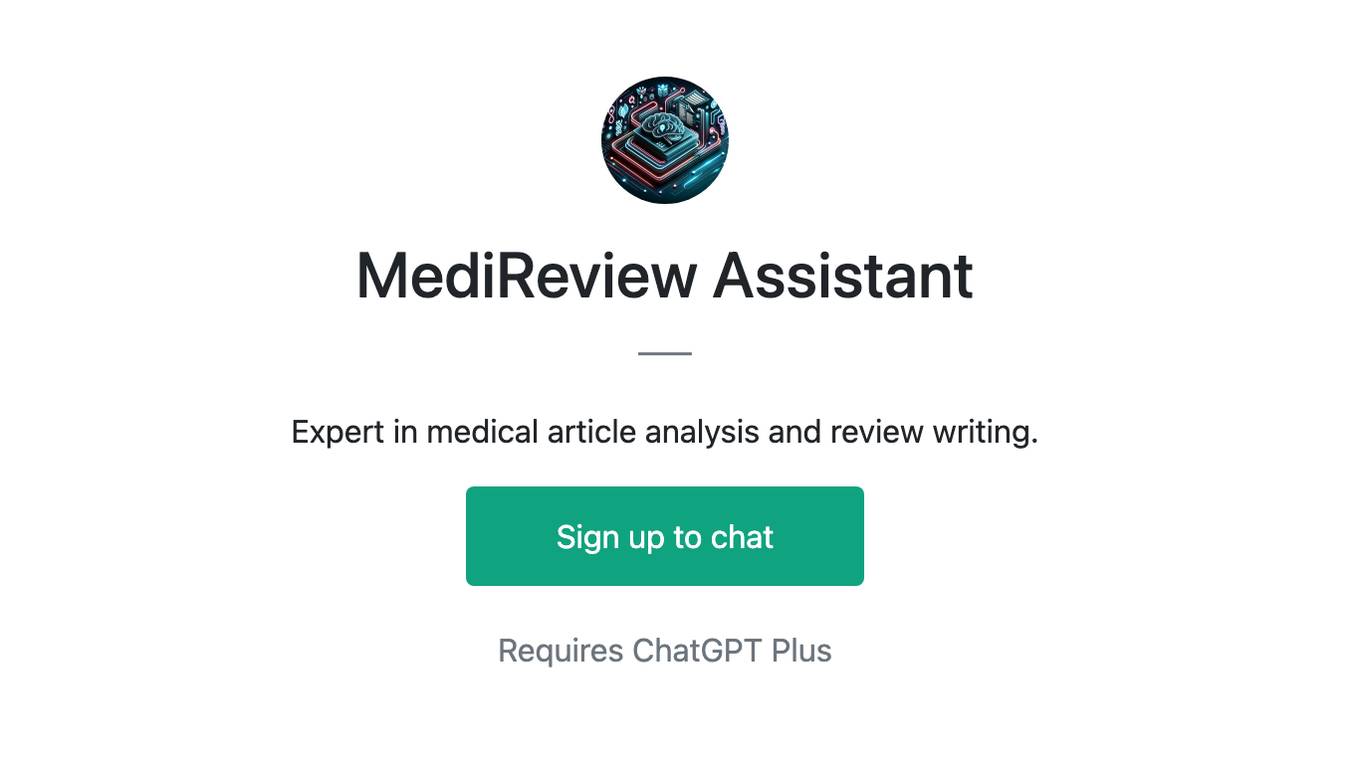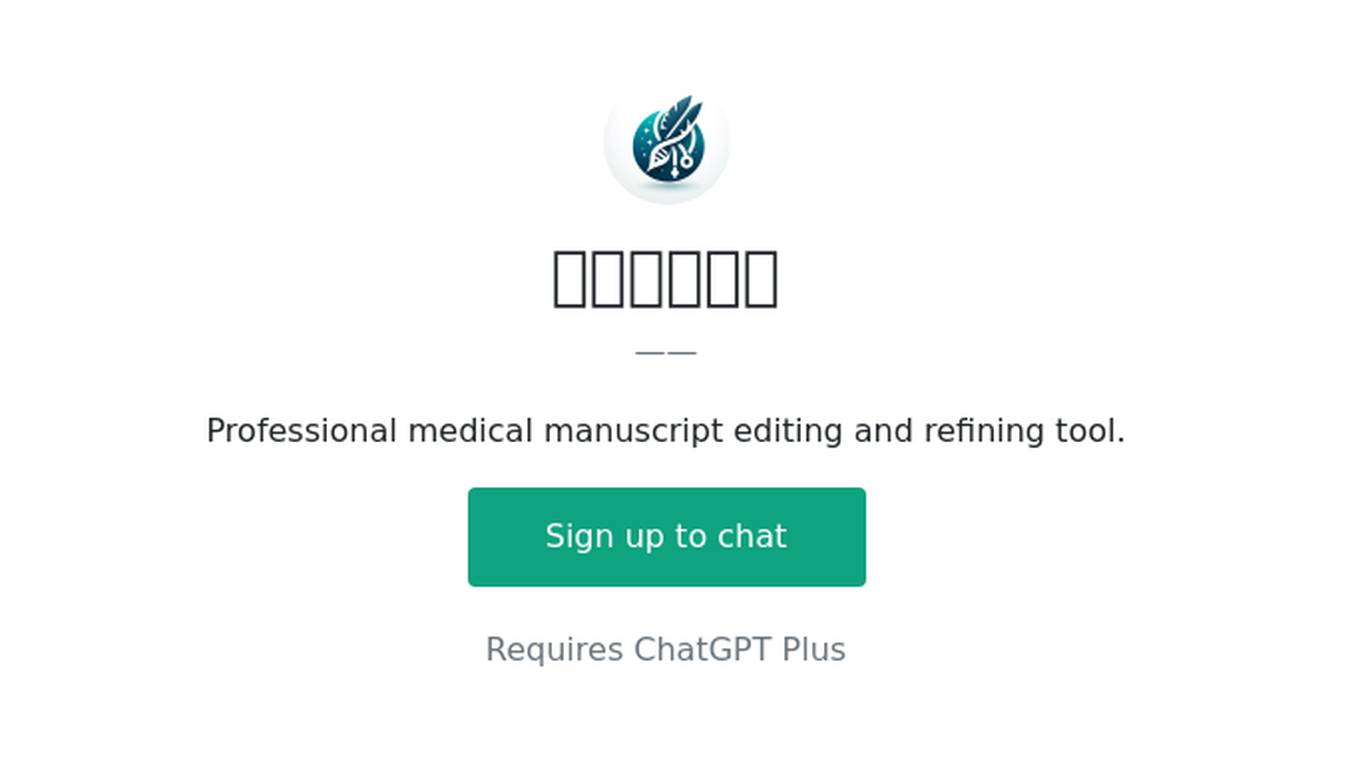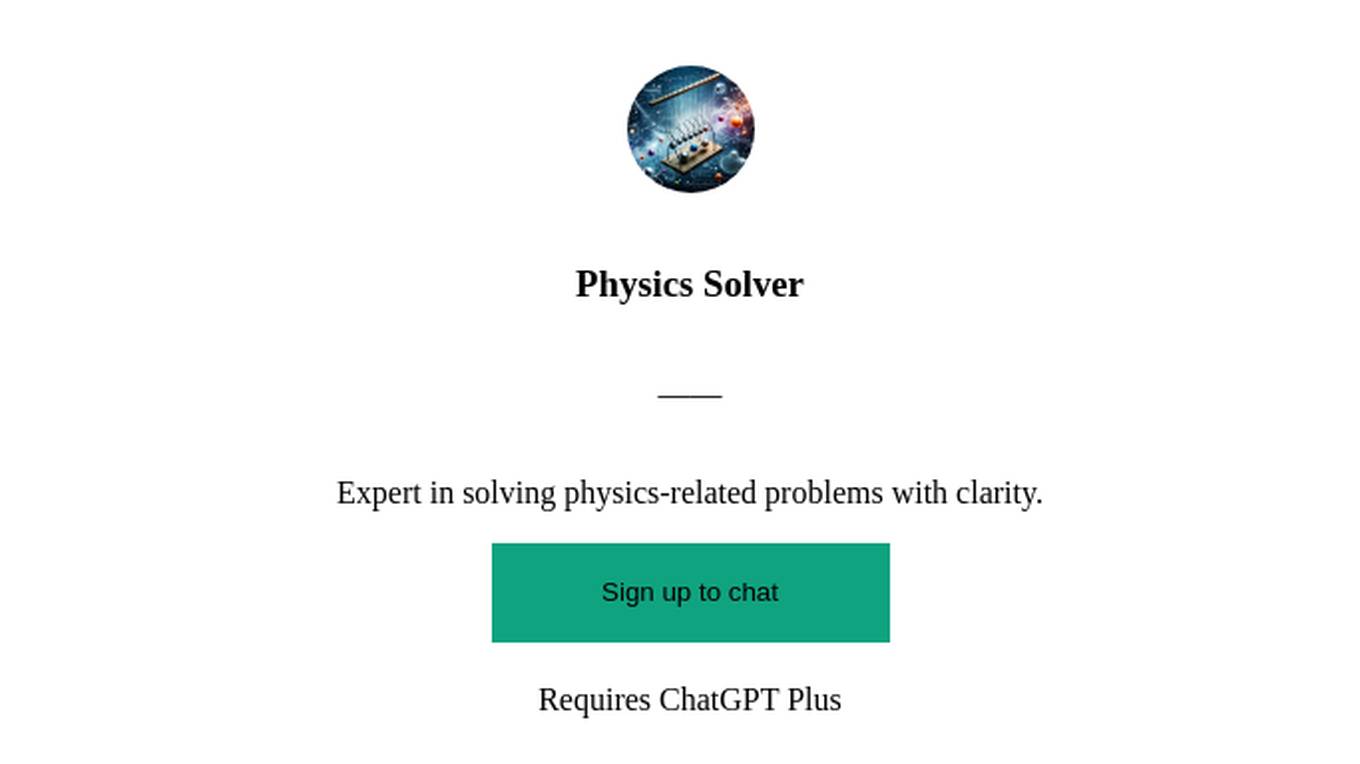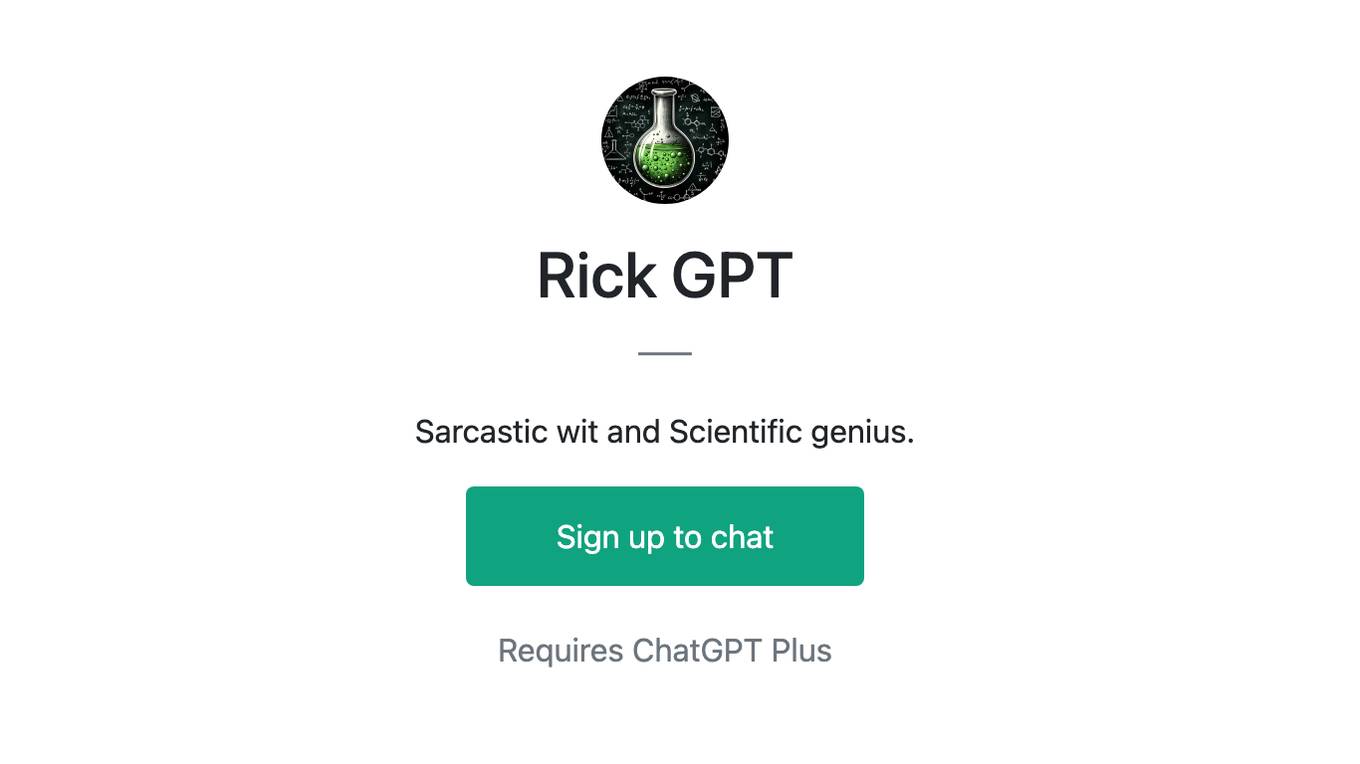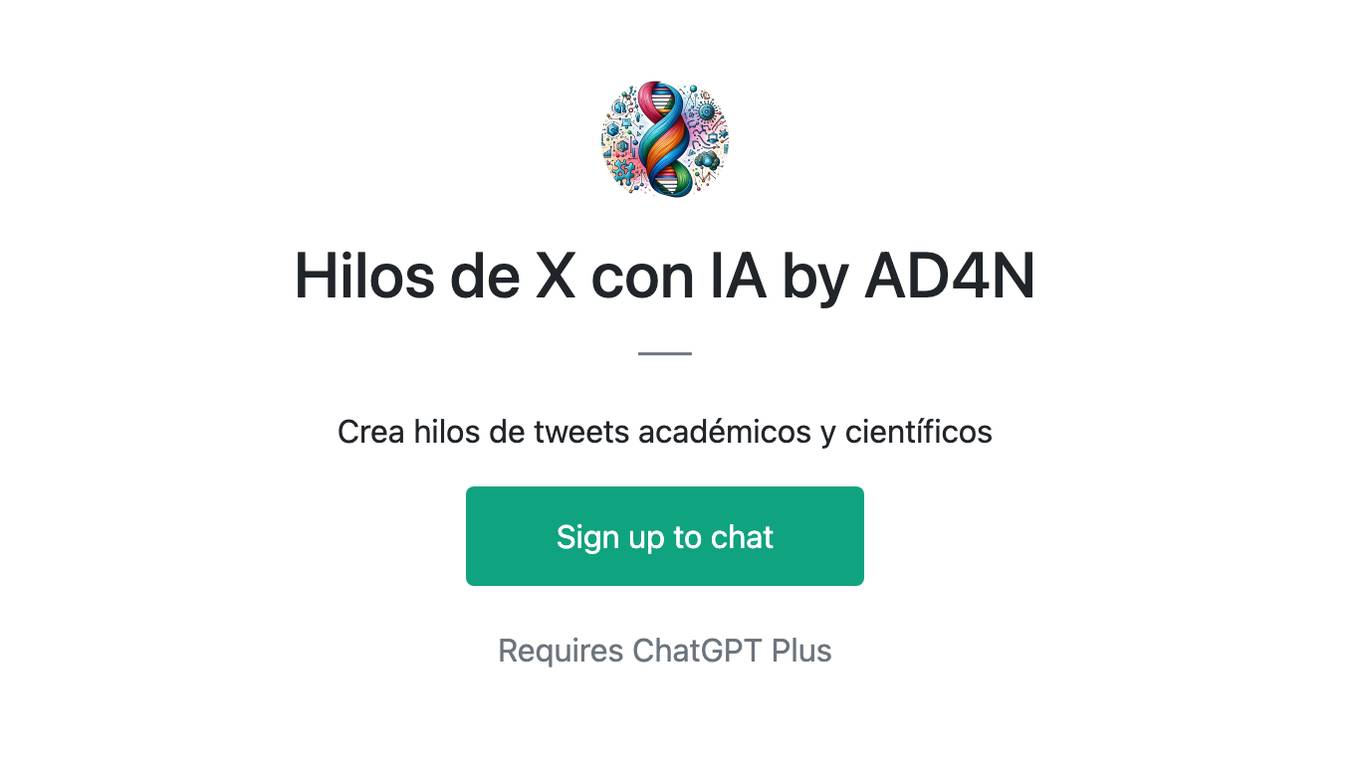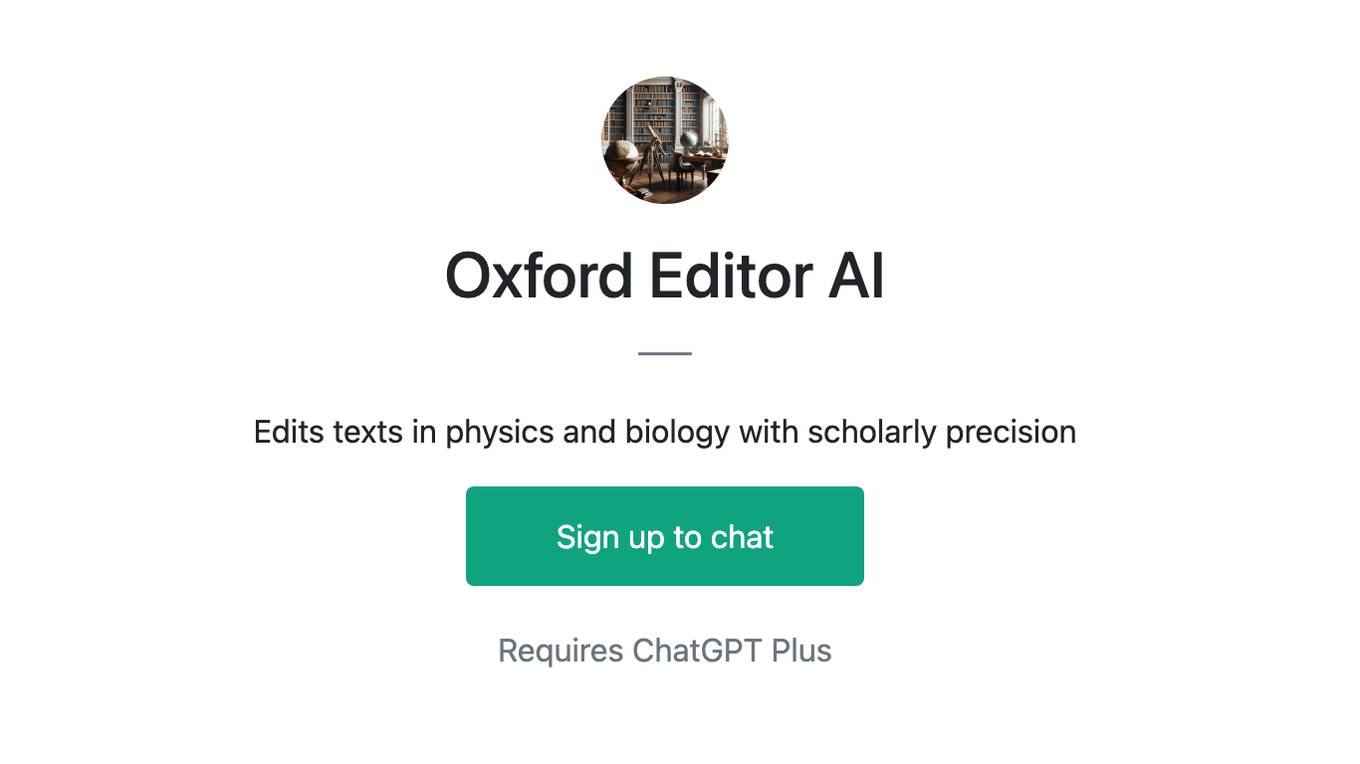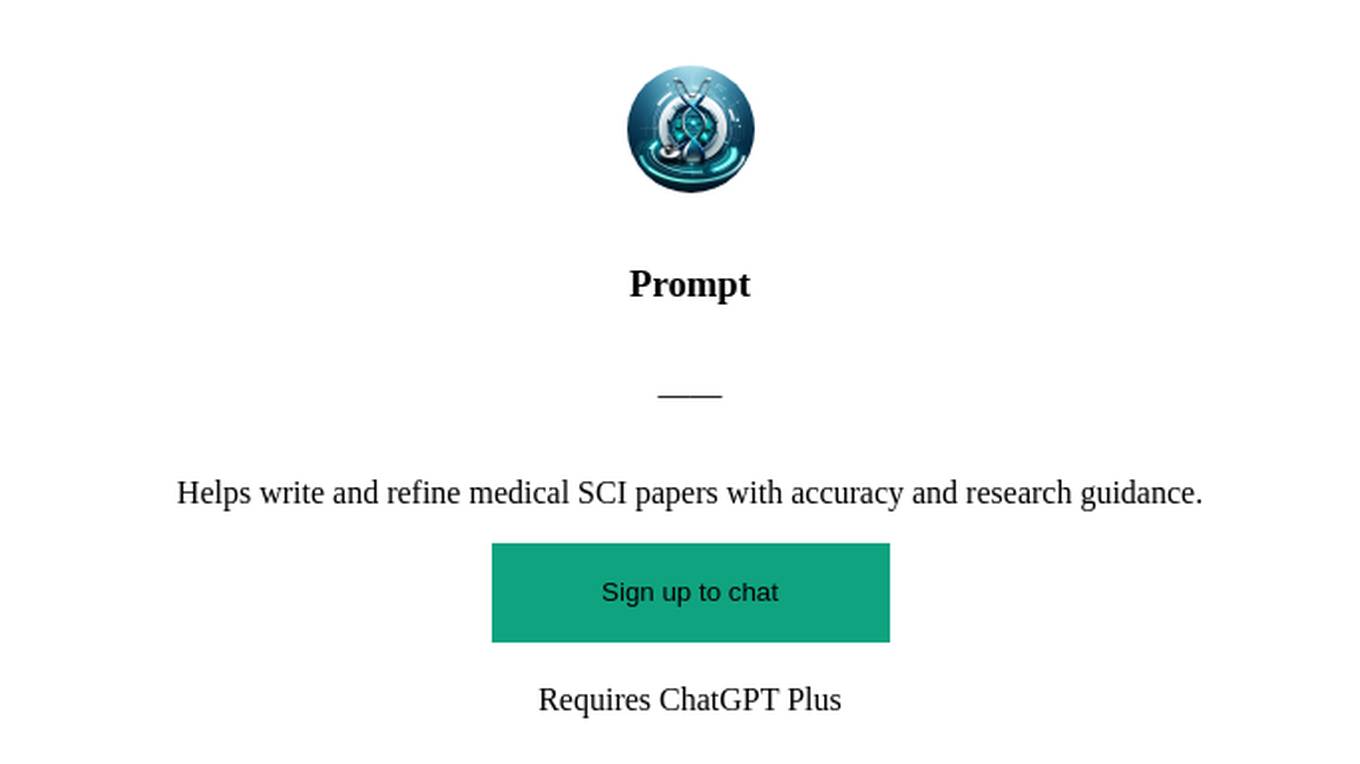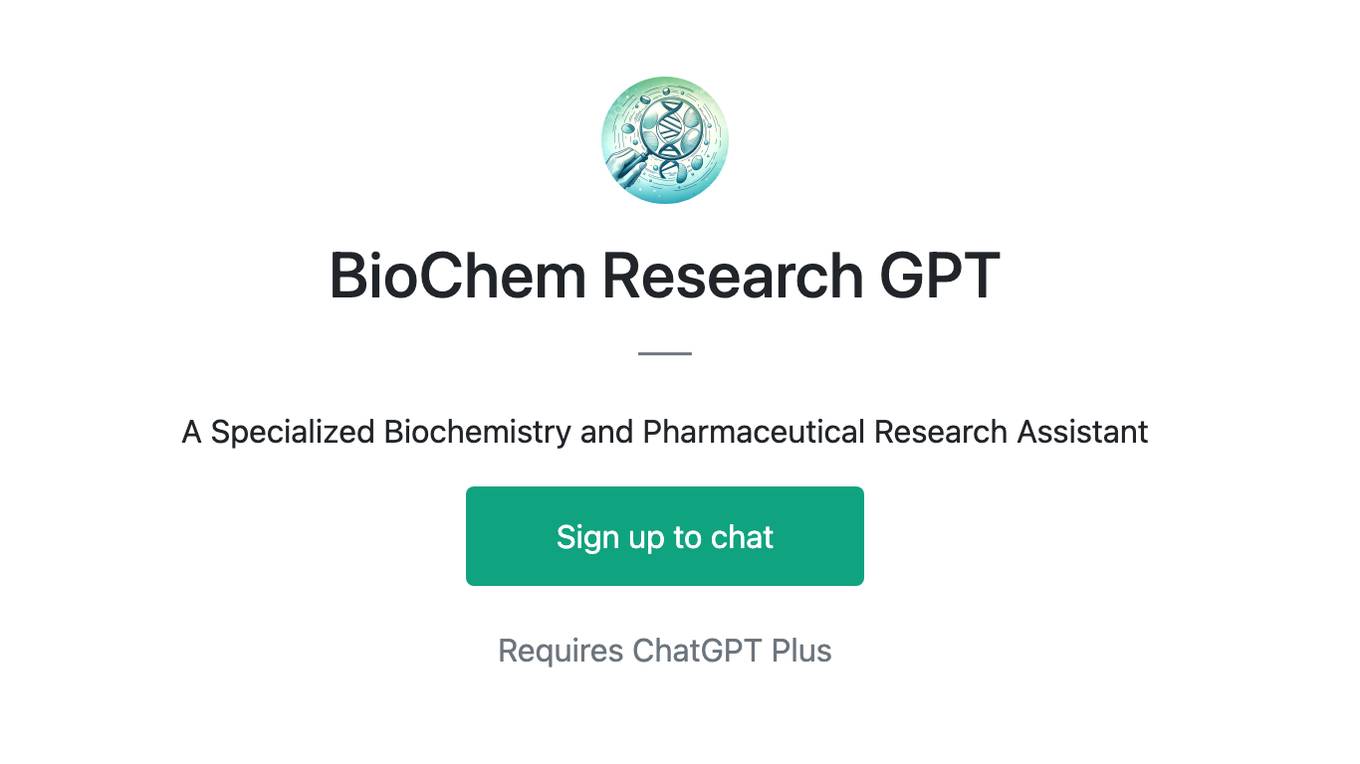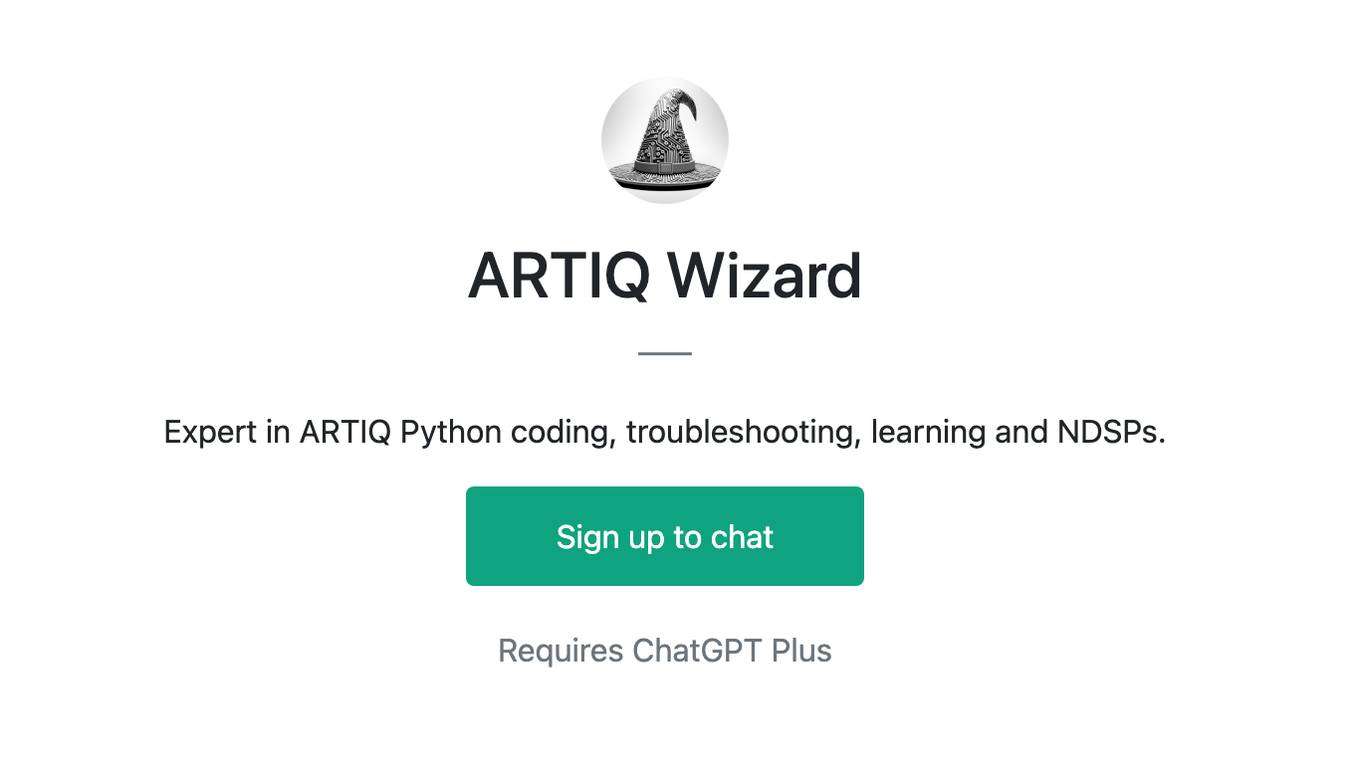Best AI tools for< Scientific Researcher >
Infographic
20 - AI tool Sites
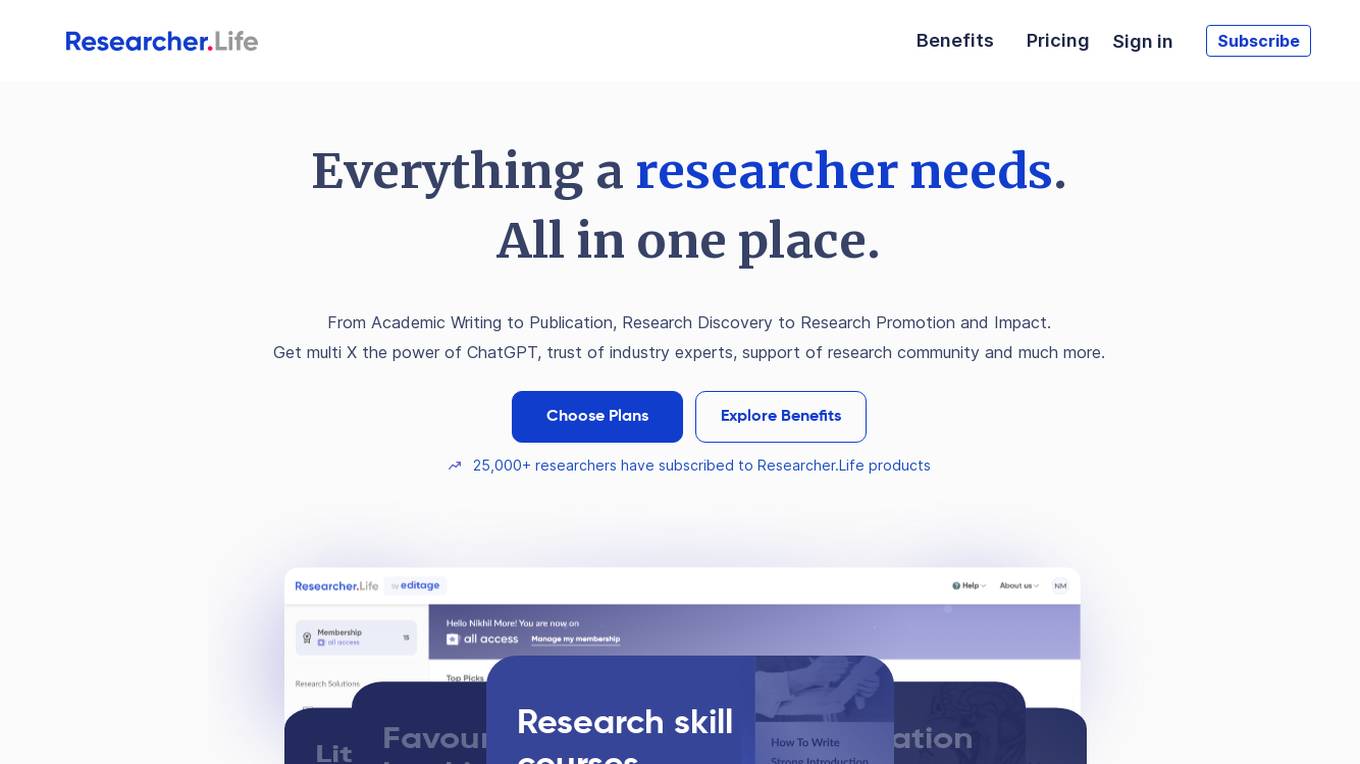
Researcher.Life
Researcher.Life is a comprehensive research support platform that provides AI-powered tools and expert publication services to empower researchers at every stage of their journey. With a suite of advanced AI tools, including Paperpal, R Discovery, and Mind the Graph, Researcher.Life helps researchers write better, discover relevant literature, create stunning scientific illustrations, and find the right journals for their work. Additionally, Researcher.Life offers expert publication services from Editage, ensuring that manuscripts are polished and ready for publication. By combining AI technology with human expertise, Researcher.Life simplifies complex research tasks, saves time, and accelerates the path to success for researchers worldwide.
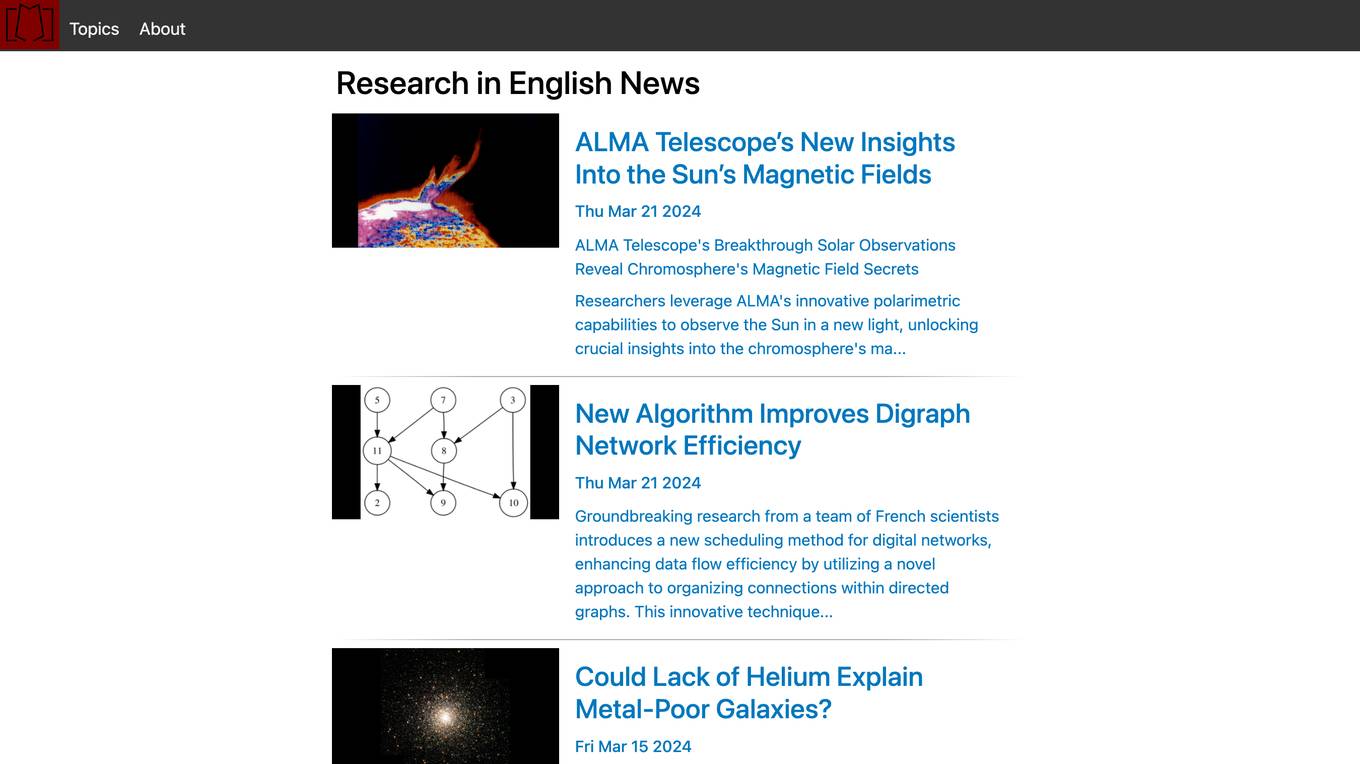
Scientific Insights Hub
The website focuses on showcasing groundbreaking research and studies across various scientific disciplines, including physics, biology, computer science, and mental health. It provides detailed insights into innovative projects, technological advancements, and transformative discoveries in the academic and research communities. Users can explore articles on topics such as quantum communication, artificial intelligence applications in healthcare, semiconductor dynamics, mental health support initiatives, and dietary interventions for mental disorders.

Floatz
Floatz is an AI tool designed for scientific research, aimed at inspiring individuals to create extraordinary things. The platform leverages artificial intelligence to assist researchers in their work, providing innovative solutions and insights to drive scientific discoveries. With a focus on creativity and imagination, Floatz empowers users to explore new possibilities and push the boundaries of knowledge in various fields of study.
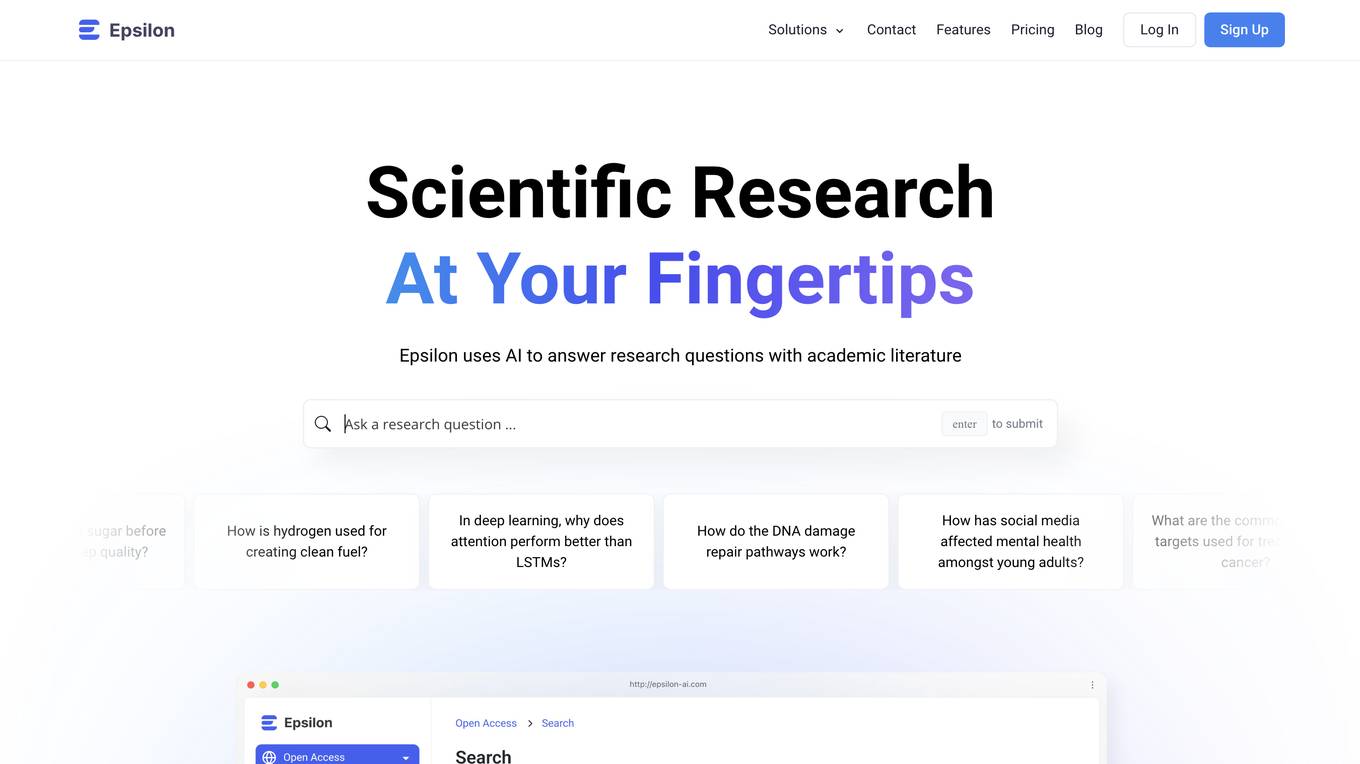
Epsilon
Epsilon is an AI search engine designed for scientific research solutions. It helps researchers find evidence, citations, and relevant information from over 200 million academic papers. Epsilon can summarize passages, group search results, extract key information from multiple papers, and provide comprehensive summaries. Trusted by over 30,000 researchers worldwide, Epsilon is a reliable tool for conducting literature reviews, drafting proposals, and executing research projects.
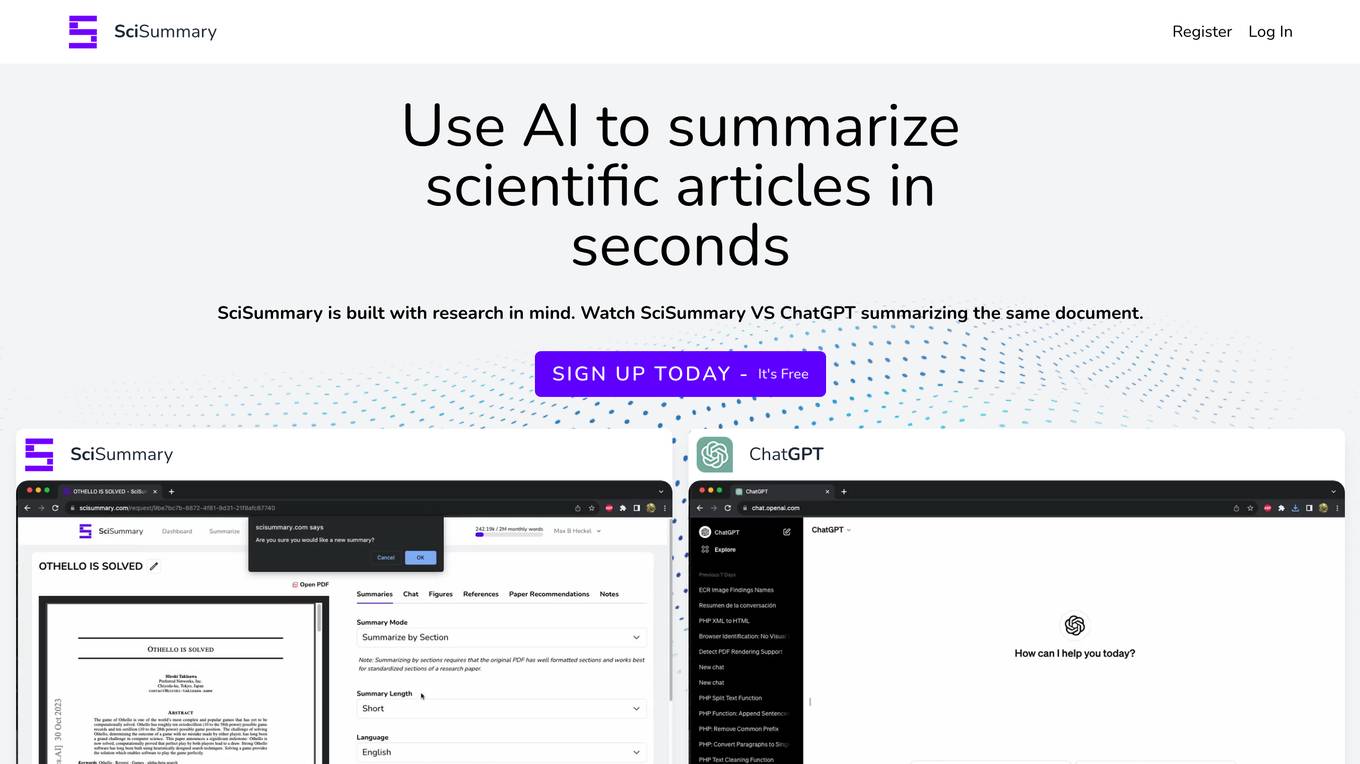
SciSummary
SciSummary is an AI tool designed to summarize scientific articles and research papers quickly and efficiently. It utilizes advanced AI technology, specifically GPT-3.5 and GPT-4 models, to provide accurate and concise summaries for busy scientists, students, and enthusiasts. The platform allows users to submit documents via email, upload articles to the dashboard, or attach PDFs for summarization. With features like unlimited summaries, figure and table analysis, and chat messages, SciSummary is a valuable resource for researchers looking to stay updated with the latest trends in research.
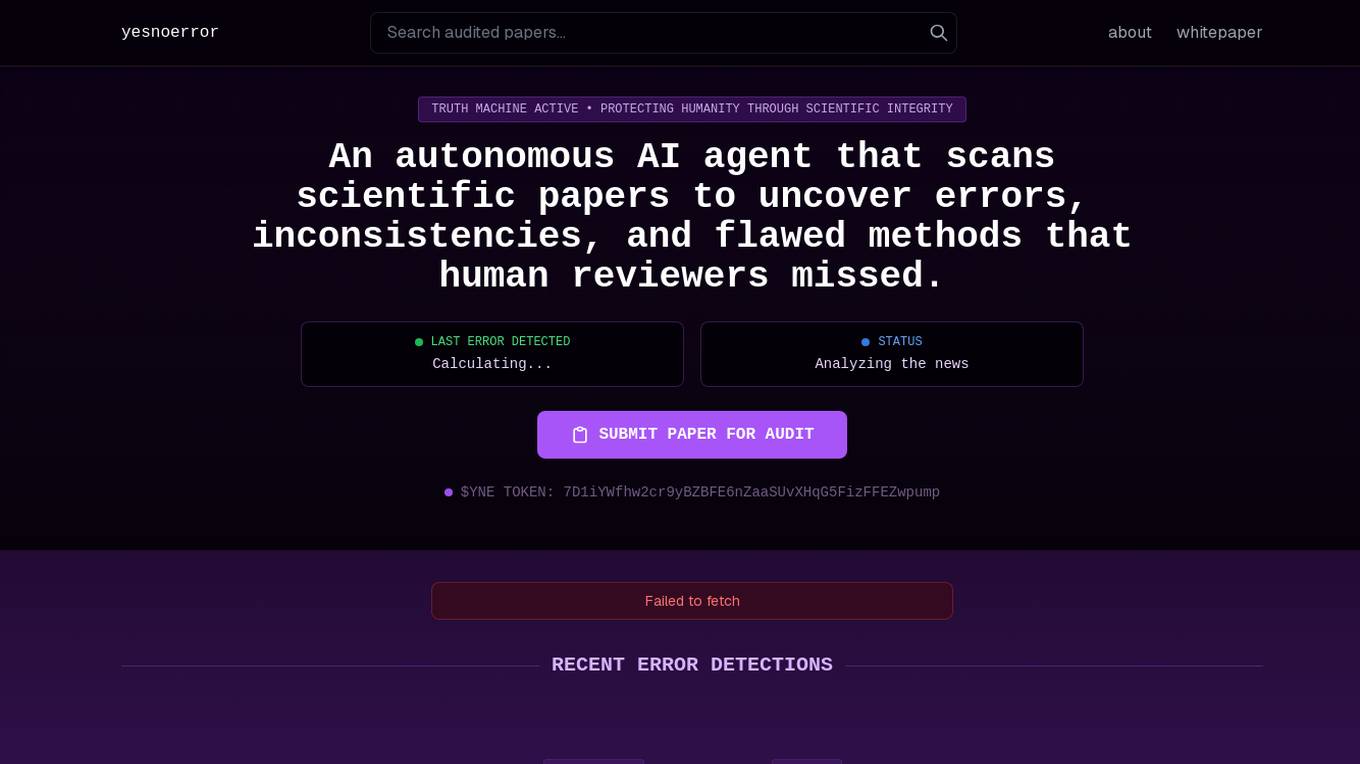
yesnoerror
yesnoerror is an autonomous AI agent developed by DeSci initiative that scans scientific papers to uncover errors, inconsistencies, and flawed methods that human reviewers may have missed. The tool utilizes blockchain technology and AI to audit science at scale, aiming to enhance scientific integrity through automated error detection. By analyzing papers from renowned repositories like arXiv, bioRxiv, and medRxiv, yesnoerror helps researchers identify and correct critical issues in research, such as mathematical errors and data discrepancies.

MemFlow.ai
MemFlow.ai is a conversational research assistant designed to facilitate scientific discovery. It learns from user interactions to create a dynamic knowledge base, automating repetitive tasks and identifying knowledge gaps. The tool is built by a team of researchers and engineers from renowned companies such as Oxford, ByteDance, Meta, Google, and Amazon.
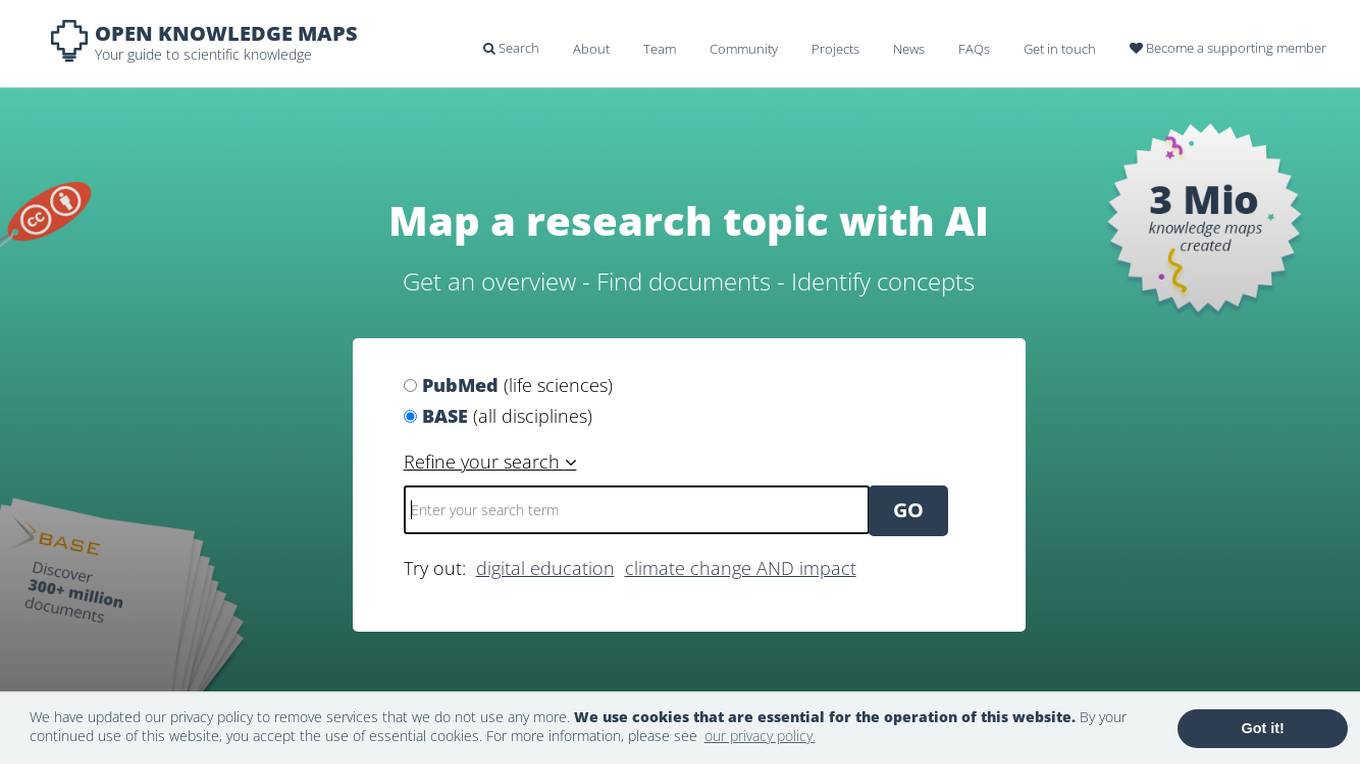
Open Knowledge Maps
Open Knowledge Maps is the world's largest AI-based search engine for scientific knowledge. It aims to revolutionize discovery by increasing the visibility of research findings for science and society. The platform is open and nonprofit, based on the principles of open science, with a mission to create an inclusive, sustainable, and equitable infrastructure for all users. Users can map research topics with AI, find documents, and identify concepts to enhance their literature search experience.

GoatStack
GoatStack is an AI-powered newsletter agent that delivers personalized insights from scientific papers. It reads over 4000 papers daily and handpicks the most relevant ones for you. With GoatStack, you can stay up-to-date on the latest AI breakthroughs and advancements. It offers a range of features to help you customize your newsletter, including the ability to personalize topics, generalize topics, or be specific with content.
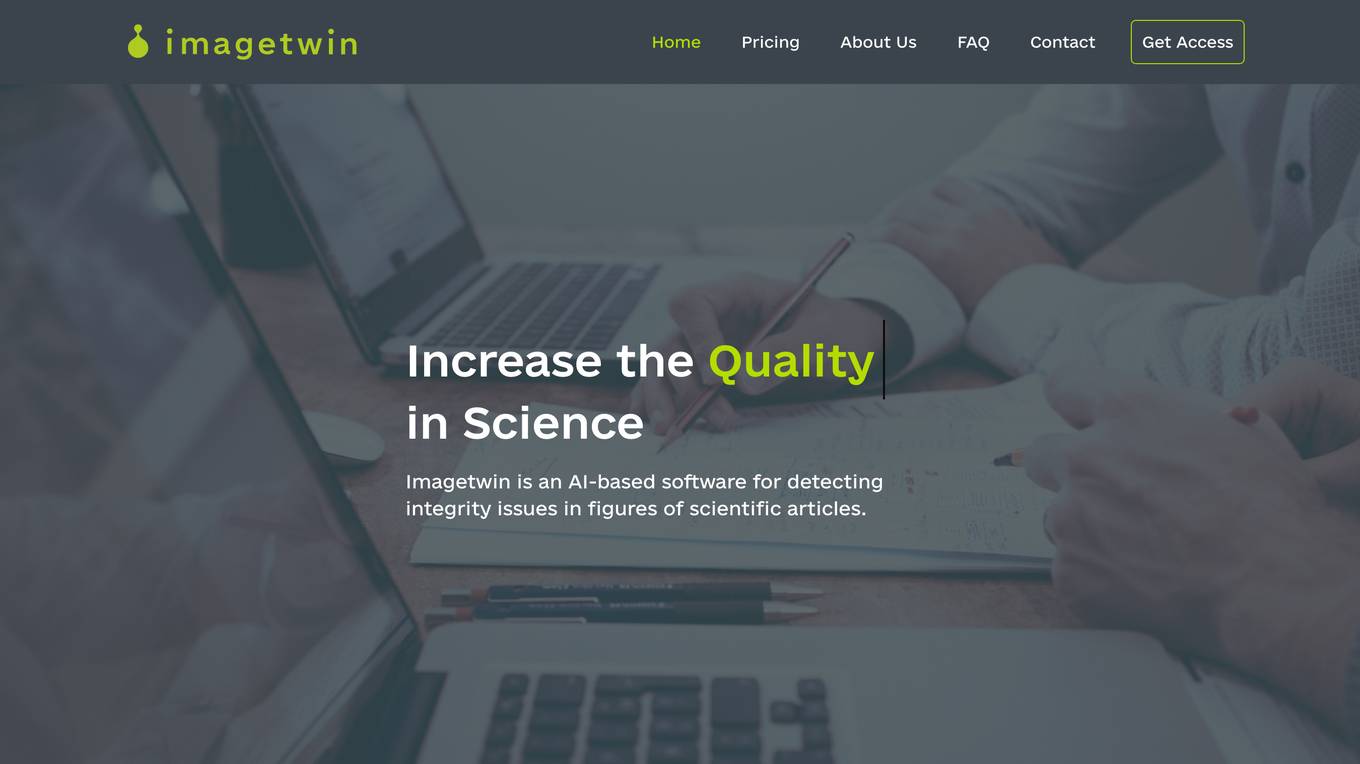
Imagetwin
Imagetwin is an AI-based software designed to detect integrity issues in figures of scientific articles, specifically in the field of life sciences. It offers efficient and accurate detection of inappropriate manipulation, duplication, and plagiarism in various types of figures such as western blots, microscopy images, and light photography. The software works by scanning PDFs or image files using an AI-based algorithm, presenting results within seconds on a web interface. Imagetwin is a valuable tool for peer-review processes, automatically detecting integrity issues to enhance publication integrity workflows.
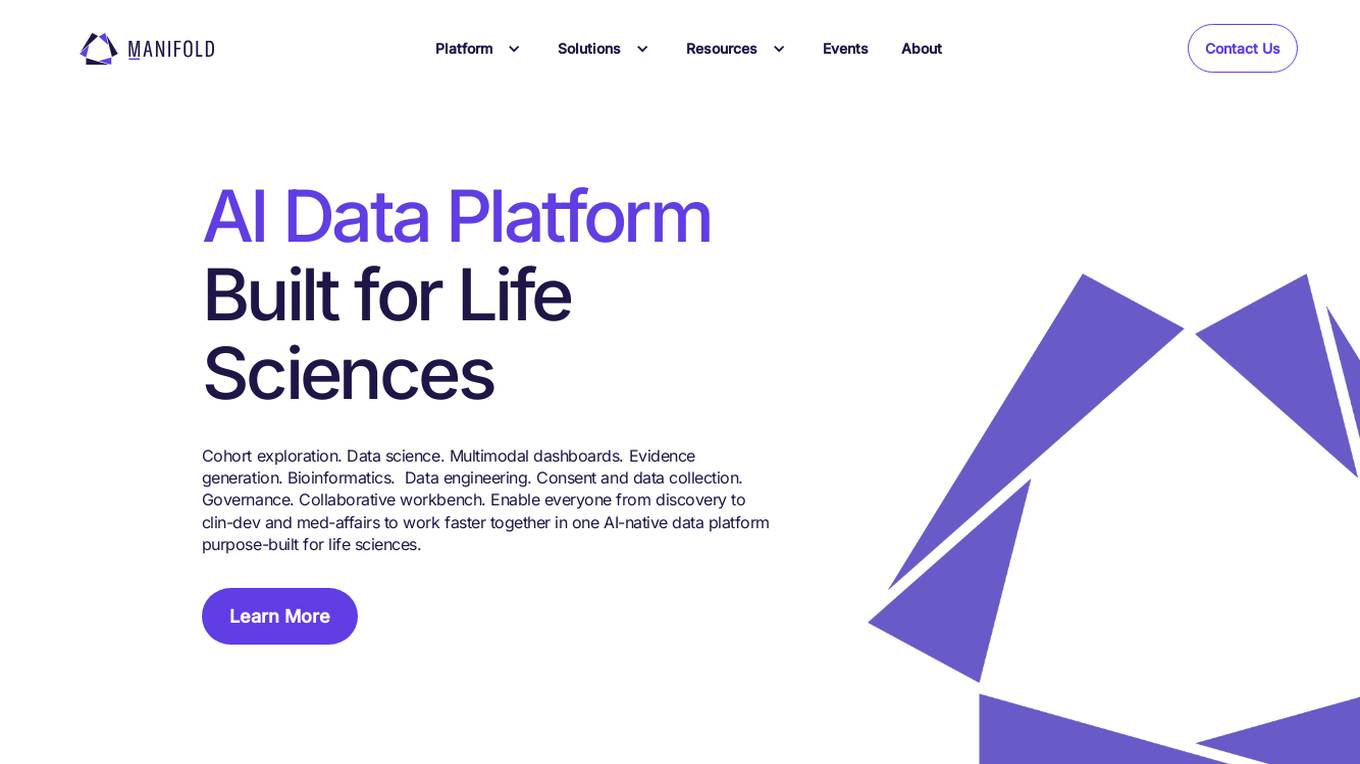
Manifold
Manifold is an AI data platform designed specifically for life sciences. It offers a collaborative workbench, data science tools, AI-powered cohort exploration, batch bioinformatics, data dashboards, data engineering solutions, access control, and more. The platform aims to enable faster collaboration and research in the life sciences field by providing a comprehensive suite of tools and features. Trusted by leading institutions, Manifold helps streamline data collection, analysis, and collaboration to accelerate scientific research.
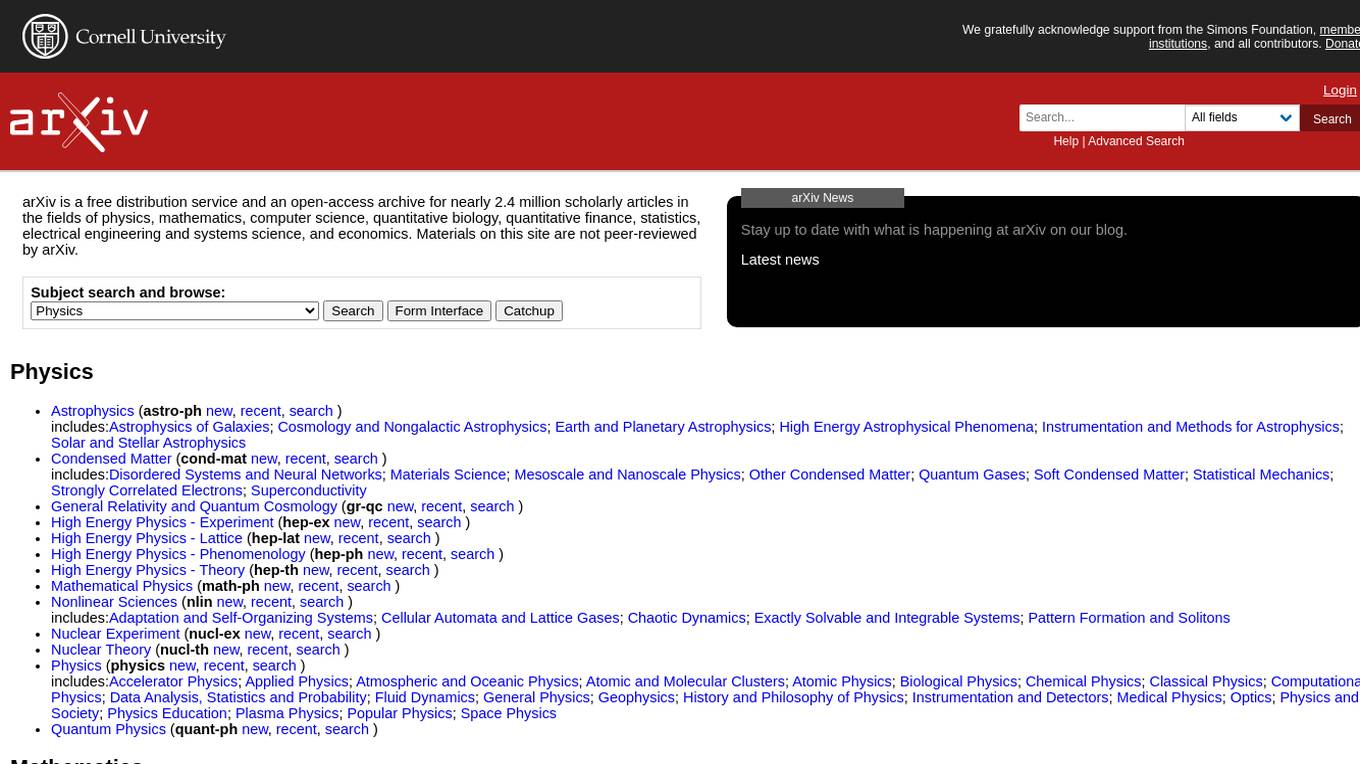
arXiv
arXiv.org is a free distribution service and an open-access archive for nearly 2.4 million scholarly articles in the fields of physics, mathematics, computer science, quantitative biology, quantitative finance, statistics, electrical engineering and systems science, and economics. Materials on this site are not peer-reviewed by arXiv.
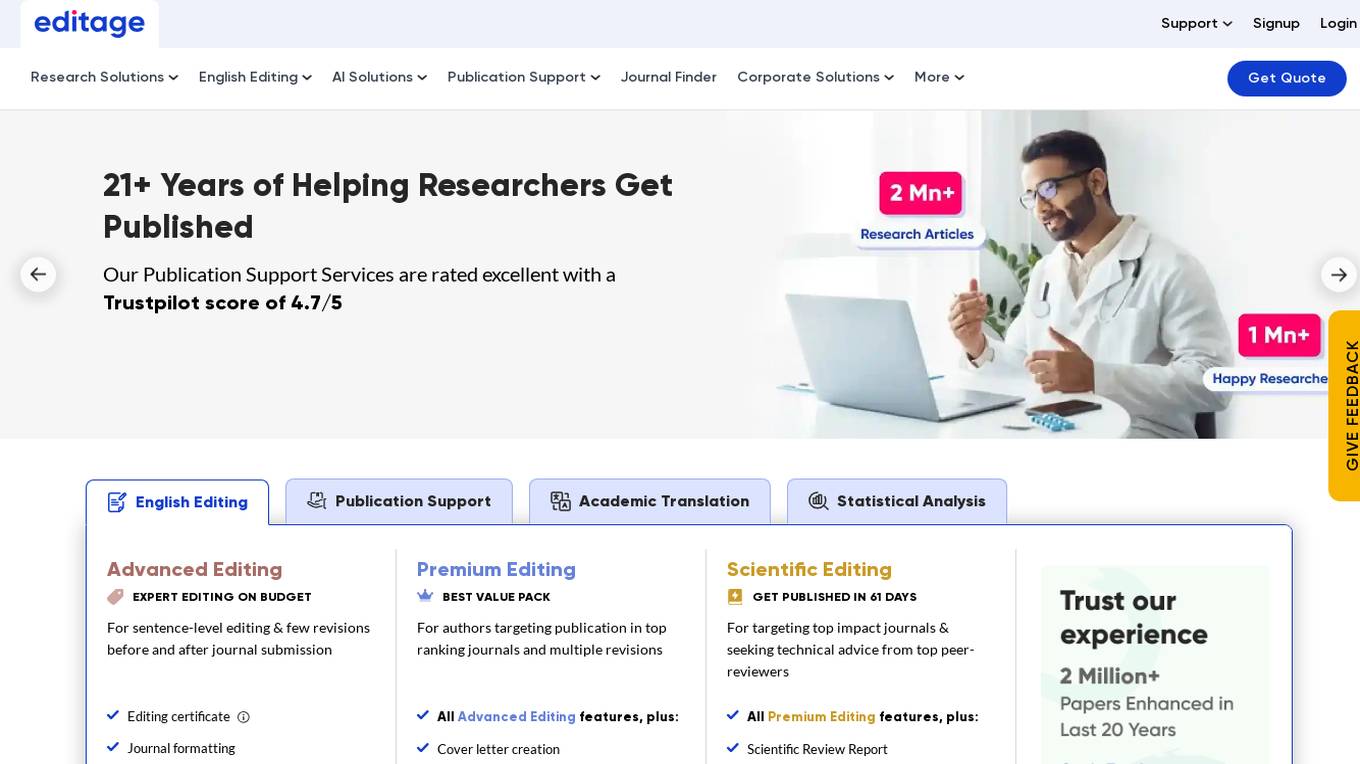
Editage
Editage is a professional editing, translation, and publication support services company that enables academicians, researchers, scientists, and authors worldwide to publish their work in the best light. Over the past two decades, Editage has helped 500,000+ researchers across 192+ countries to pursue successful publications. The goal is to help researchers improve the quality of their research and increase their chances of publication in international indexed journals.
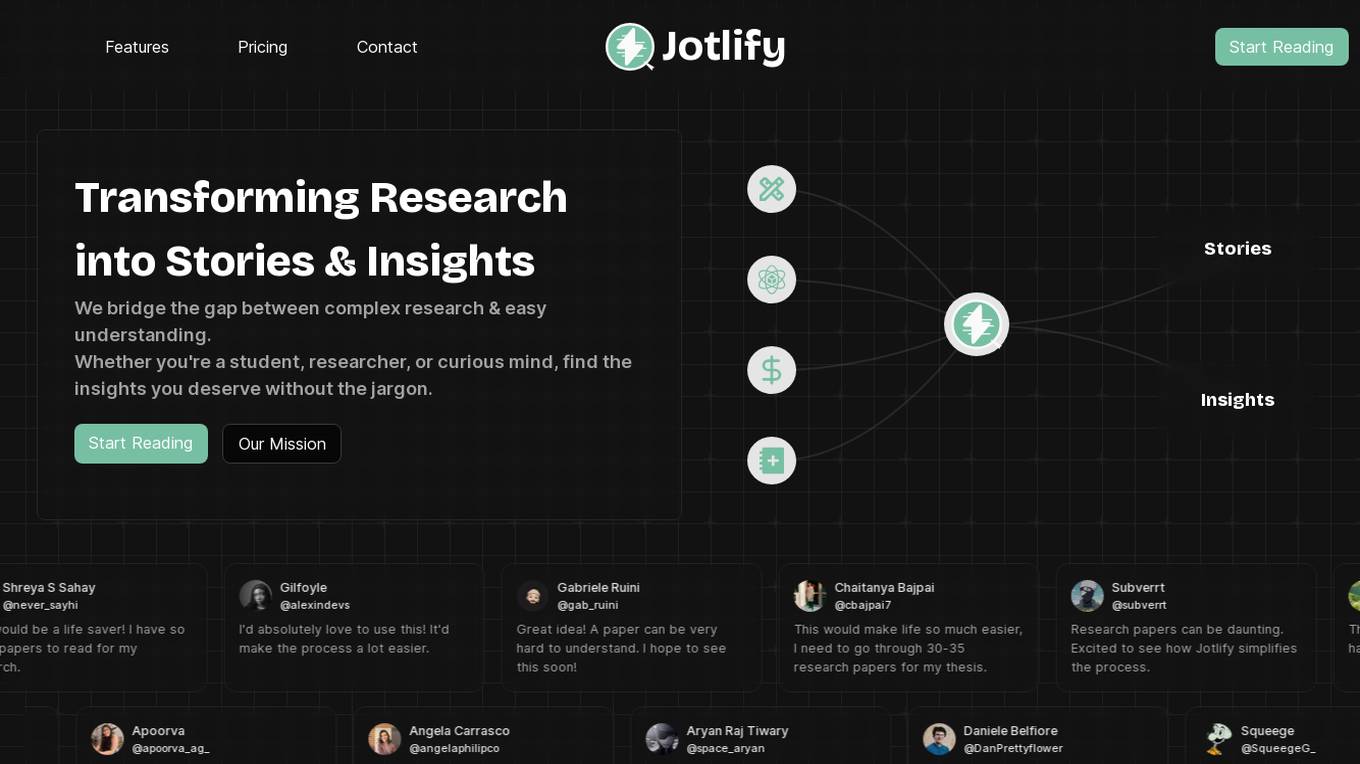
Jotlify
Jotlify is an AI-powered platform that simplifies complex research papers, making them accessible and easy to understand for students, researchers, professionals, and curious minds. It transforms dense academic content into engaging stories and insights, bridging the gap between complex research and easy understanding. With Jotlify, users can uncover stories and insights that can transform their understanding and impact various aspects of their lives.
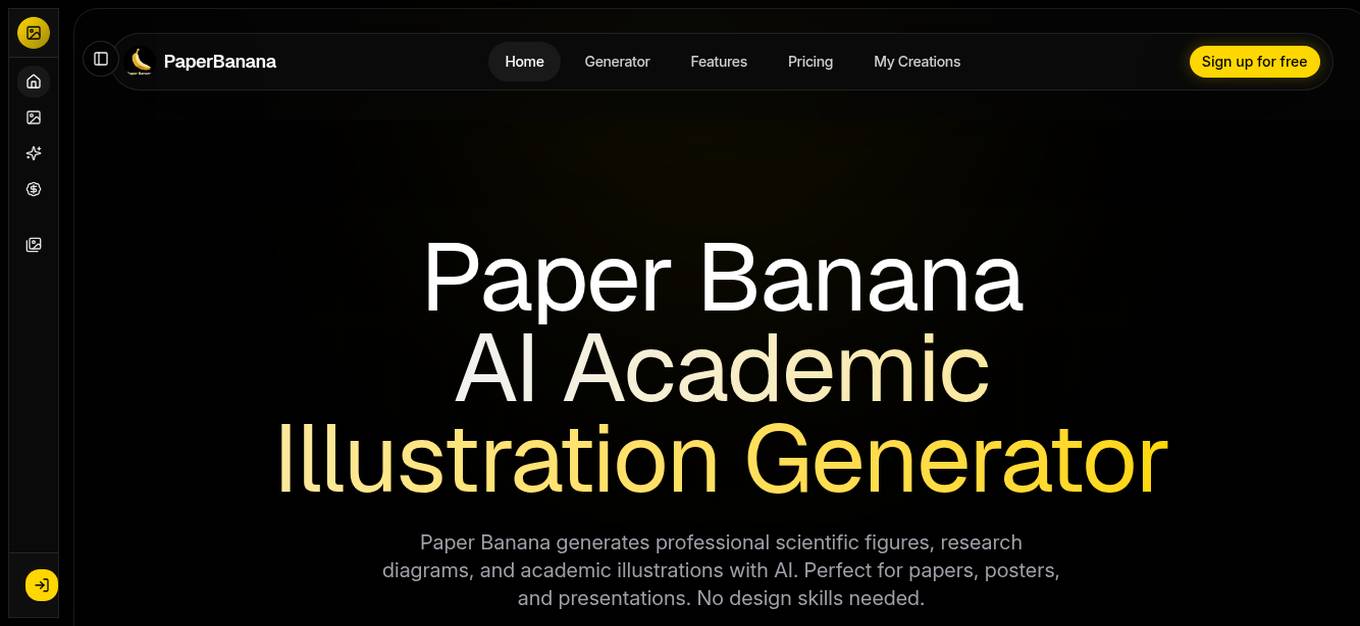
Paper Banana
Paper Banana is an AI academic illustration generator that helps researchers, students, and educators create professional scientific figures, research diagrams, and academic illustrations from text descriptions. It offers high-resolution output suitable for journal papers, conference posters, and thesis documents, without the need for design skills. The application uses advanced AI models to transform text descriptions into publication-ready illustrations, offering multiple academic styles and a zero learning curve for users.
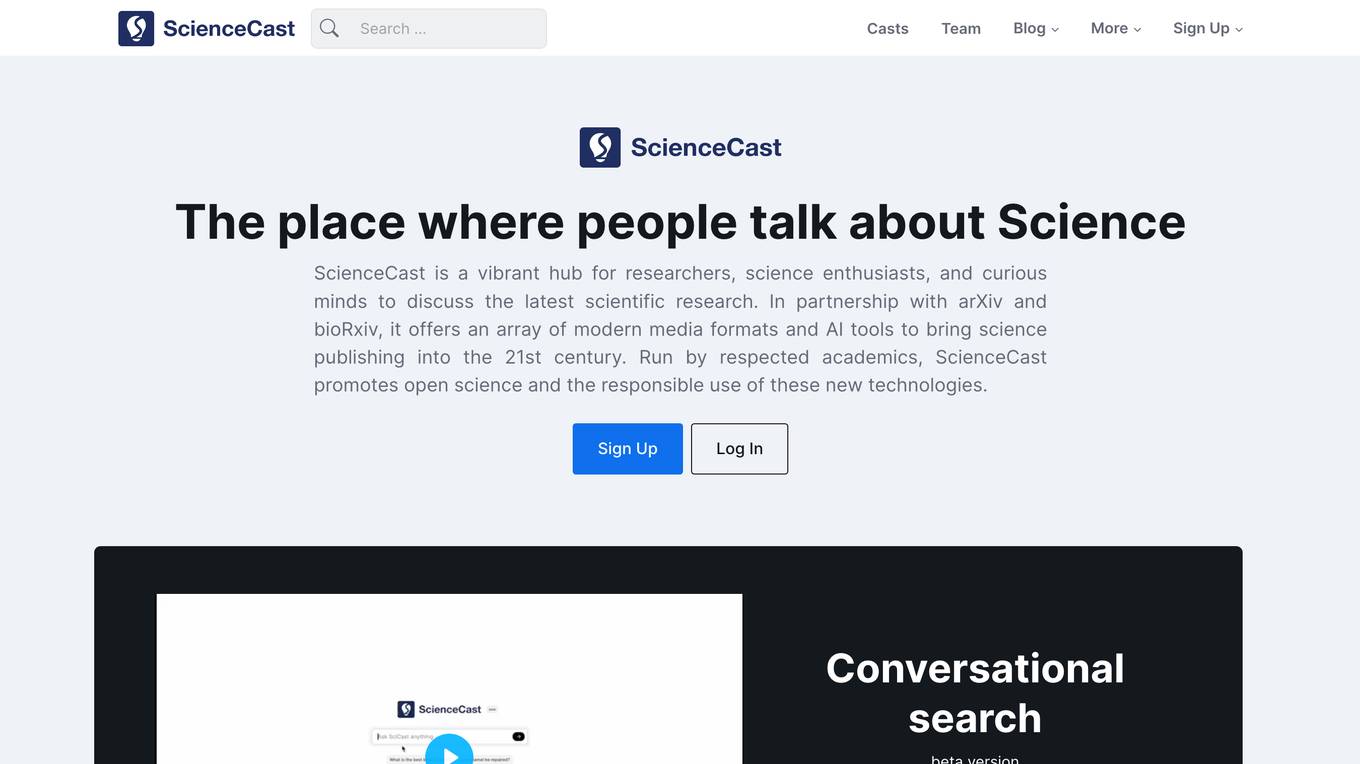
ScienceCast
ScienceCast is an AI-powered platform that simplifies the sharing of scientific research by transforming complex preprints into brief audio summaries and customizable presentation-ready slides. Leveraging advanced AI technology, ScienceCast empowers researchers to communicate their work effectively and enables anyone interested in science to understand it. The platform aims to break down barriers in how research is shared and consumed, fostering open science, access, education, and accelerating discovery.
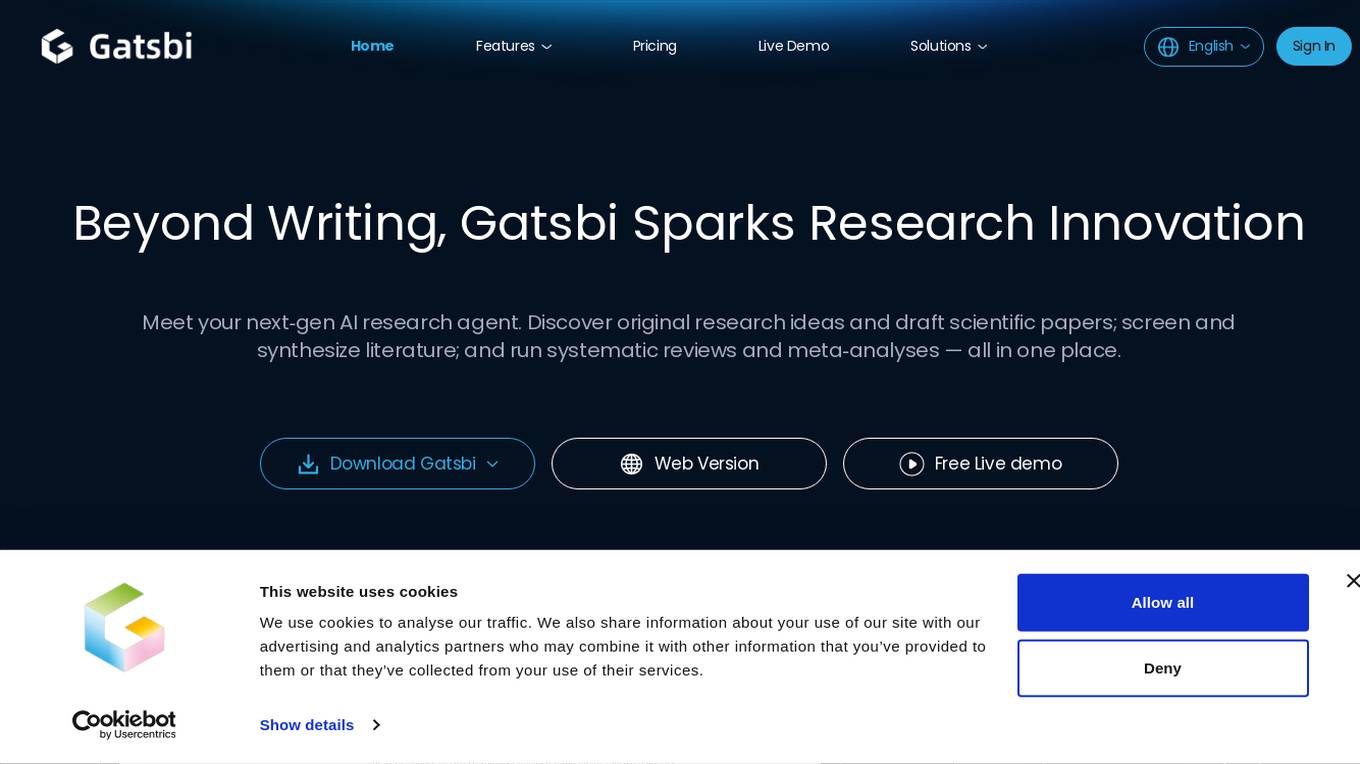
Gatsbi
Gatsbi is a research paper generator and AI research assistant that helps users discover original research ideas, draft scientific papers, write patent documents, and conduct systematic reviews and meta-analyses. It offers powerful features tailored for researchers and innovators, leveraging AI-driven ideation and innovation to streamline the research process. Gatsbi is designed to accelerate research workflows, save time, and inspire groundbreaking ideas across various fields.
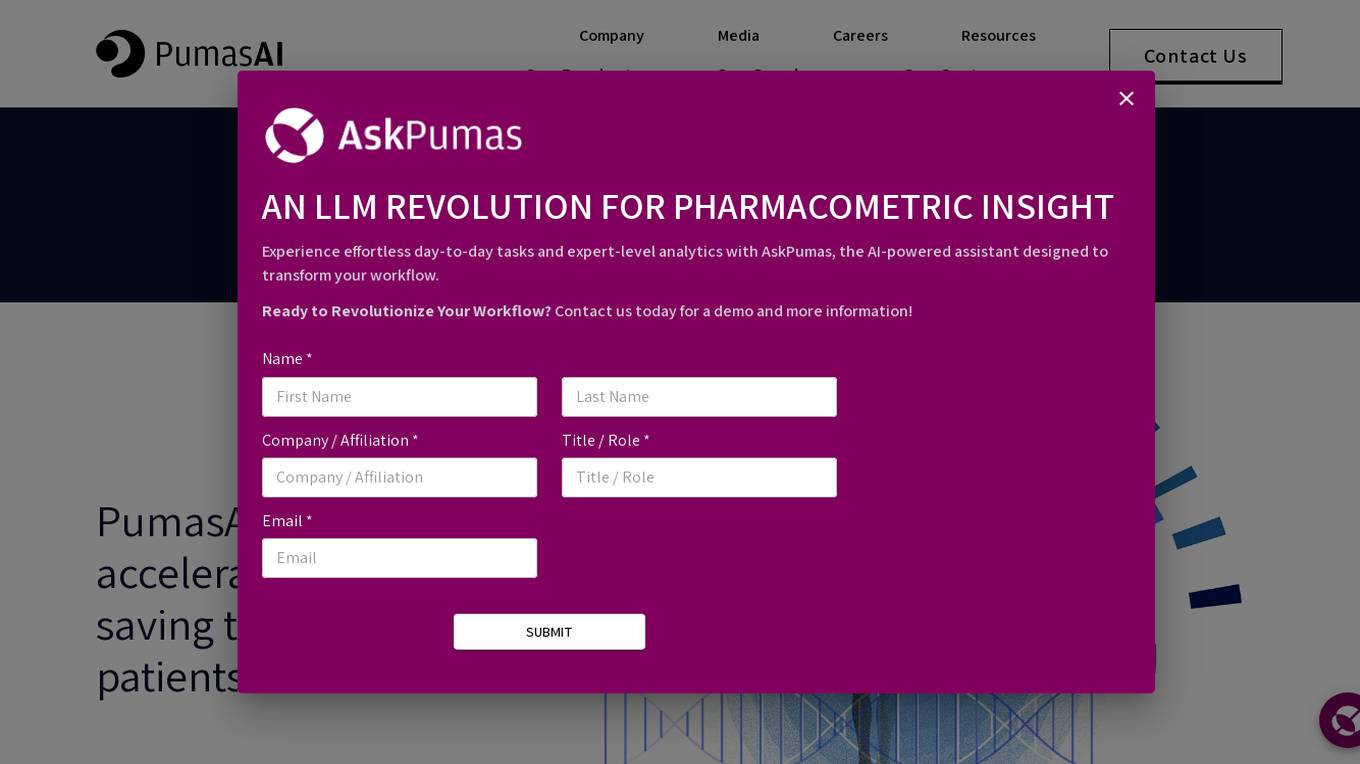
PumasAI
PumasAI is an AI tool designed to accelerate access to life-saving treatments for patients by providing data analytics tools and personalized treatments for drug development and healthcare delivery needs. The company has been recognized for its innovative contributions to the pharmaceutical industry, helping in making data-driven decisions more efficiently. PumasAI aims to save time and money for its clients through its fine-tuned offerings and successful regulatory submissions.

Medical News Hub
The website is a comprehensive platform providing medical news, articles, and resources covering a wide range of health topics such as COVID-19, artificial intelligence in healthcare, diseases, treatments, and medical advancements. It offers insights from experts, interviews, white papers, and newsletters in the fields of medicine and life sciences. Users can access information on various health categories, research findings, safety summaries, and trending stories in the medical and life sciences domains.
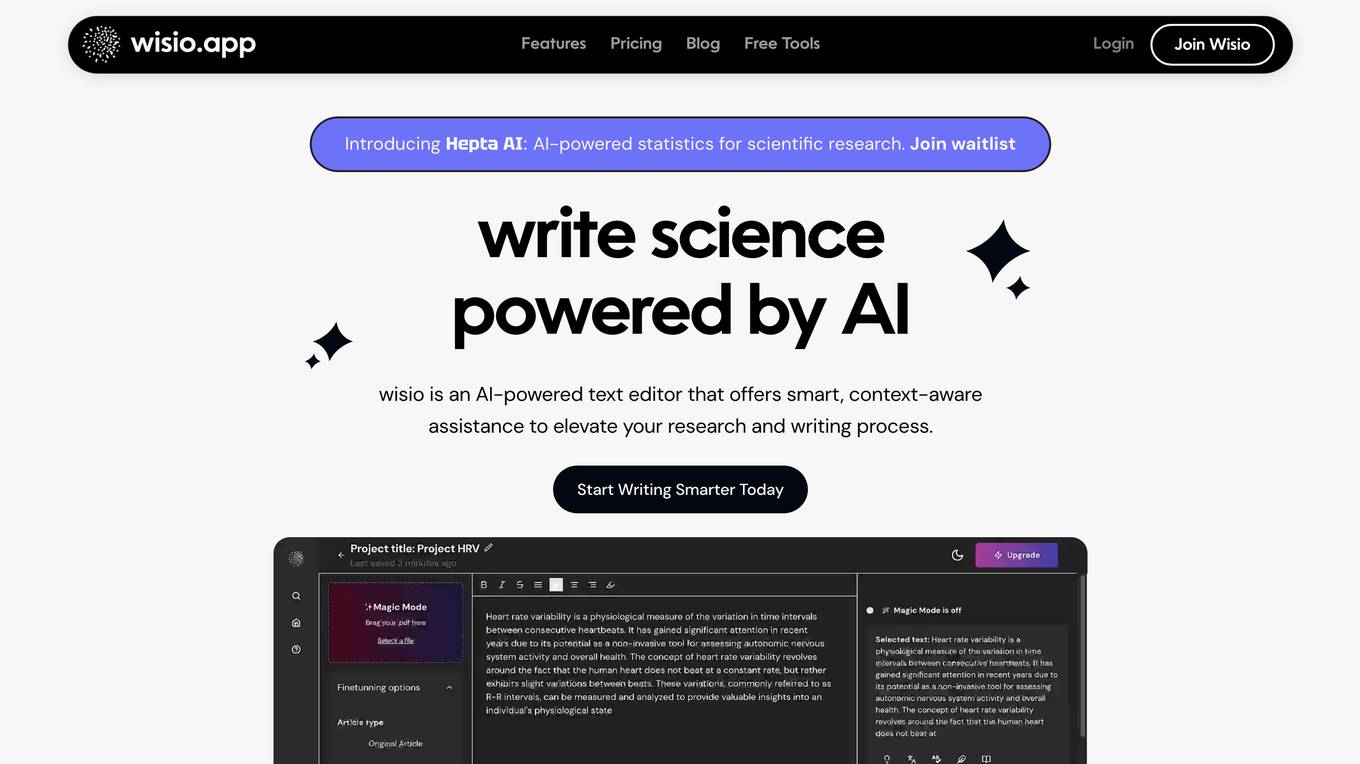
wisio
wisio is an AI-powered writing assistant that helps scientists write better scientific documents. It provides real-time feedback on grammar, style, and clarity, and it can also help you to generate new ideas and organize your thoughts. wisio is designed to make scientific writing faster, easier, and more effective.
5 - Open Source Tools
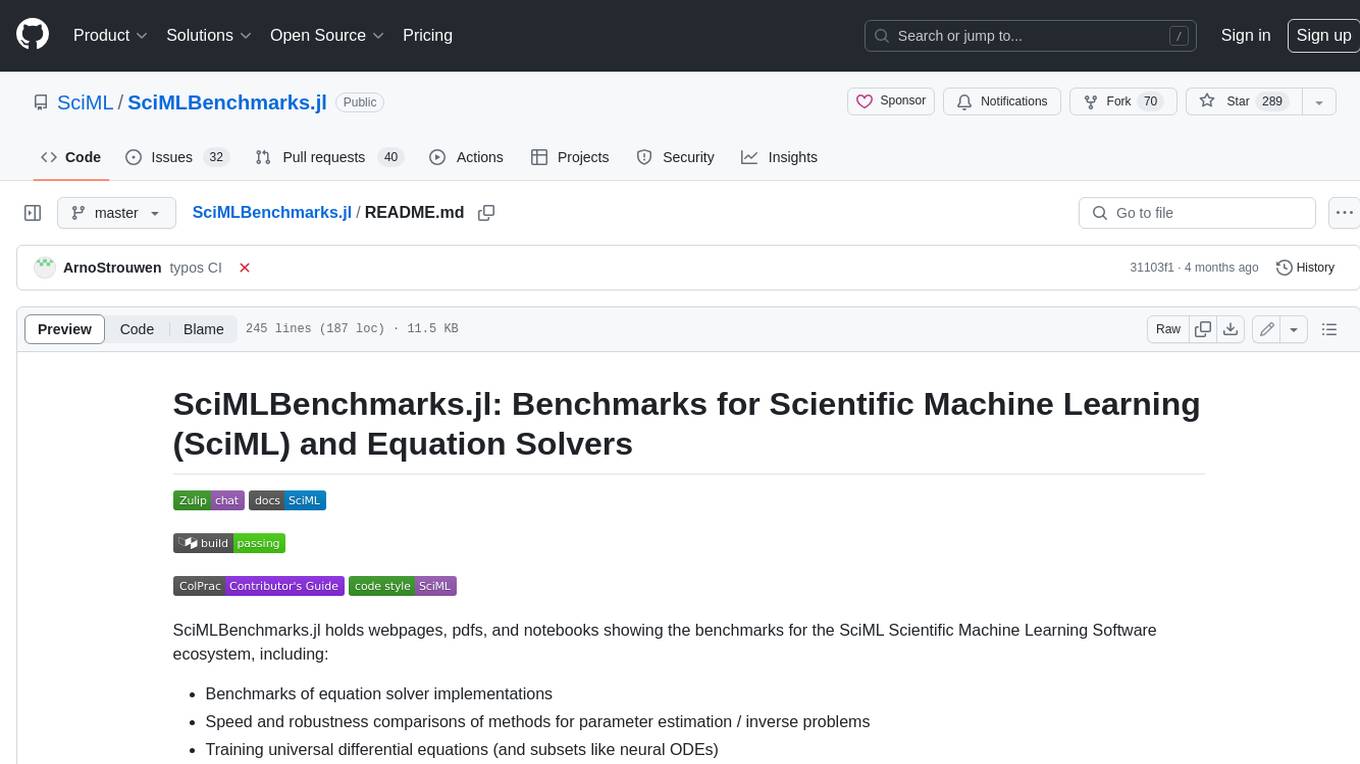
SciMLBenchmarks.jl
SciMLBenchmarks.jl holds webpages, pdfs, and notebooks showing the benchmarks for the SciML Scientific Machine Learning Software ecosystem, including: * Benchmarks of equation solver implementations * Speed and robustness comparisons of methods for parameter estimation / inverse problems * Training universal differential equations (and subsets like neural ODEs) * Training of physics-informed neural networks (PINNs) * Surrogate comparisons, including radial basis functions, neural operators (DeepONets, Fourier Neural Operators), and more The SciML Bench suite is made to be a comprehensive open source benchmark from the ground up, covering the methods of computational science and scientific computing all the way to AI for science.
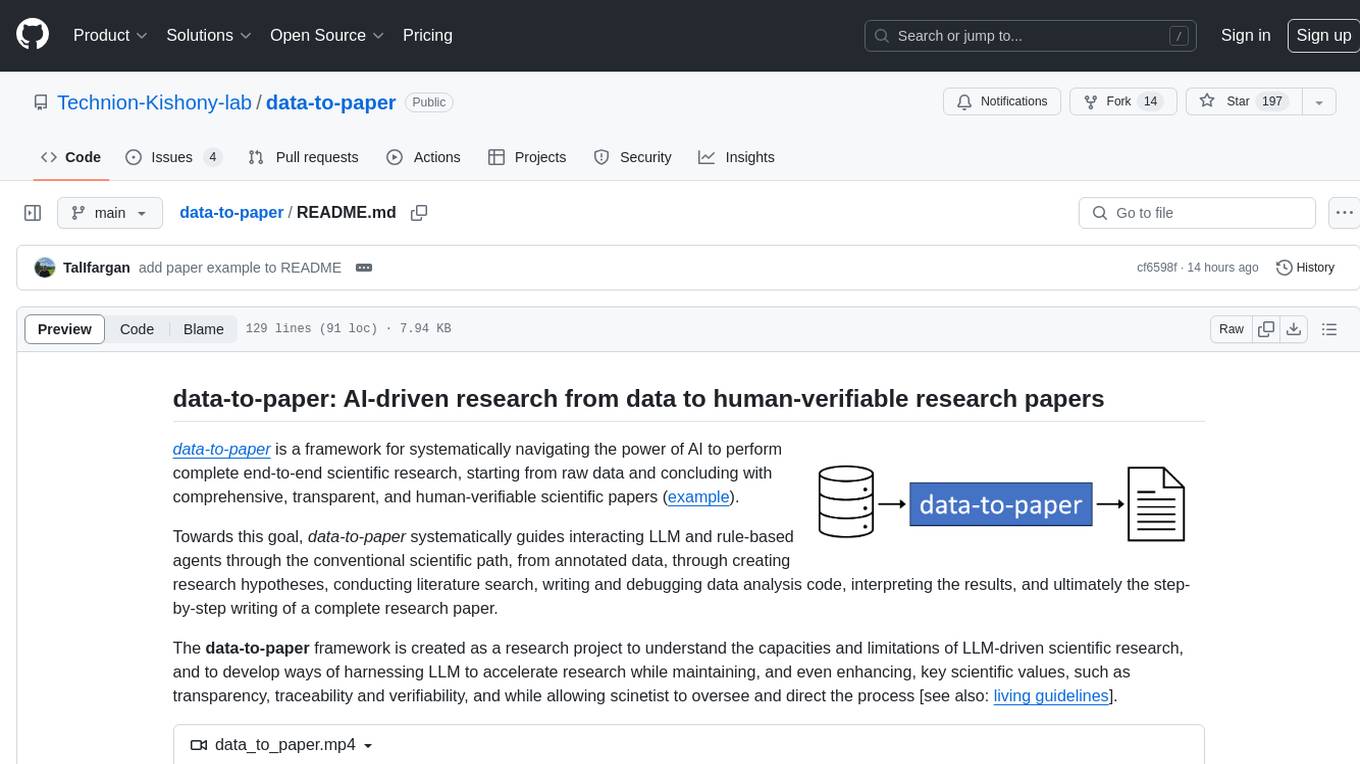
data-to-paper
Data-to-paper is an AI-driven framework designed to guide users through the process of conducting end-to-end scientific research, starting from raw data to the creation of comprehensive and human-verifiable research papers. The framework leverages a combination of LLM and rule-based agents to assist in tasks such as hypothesis generation, literature search, data analysis, result interpretation, and paper writing. It aims to accelerate research while maintaining key scientific values like transparency, traceability, and verifiability. The framework is field-agnostic, supports both open-goal and fixed-goal research, creates data-chained manuscripts, involves human-in-the-loop interaction, and allows for transparent replay of the research process.
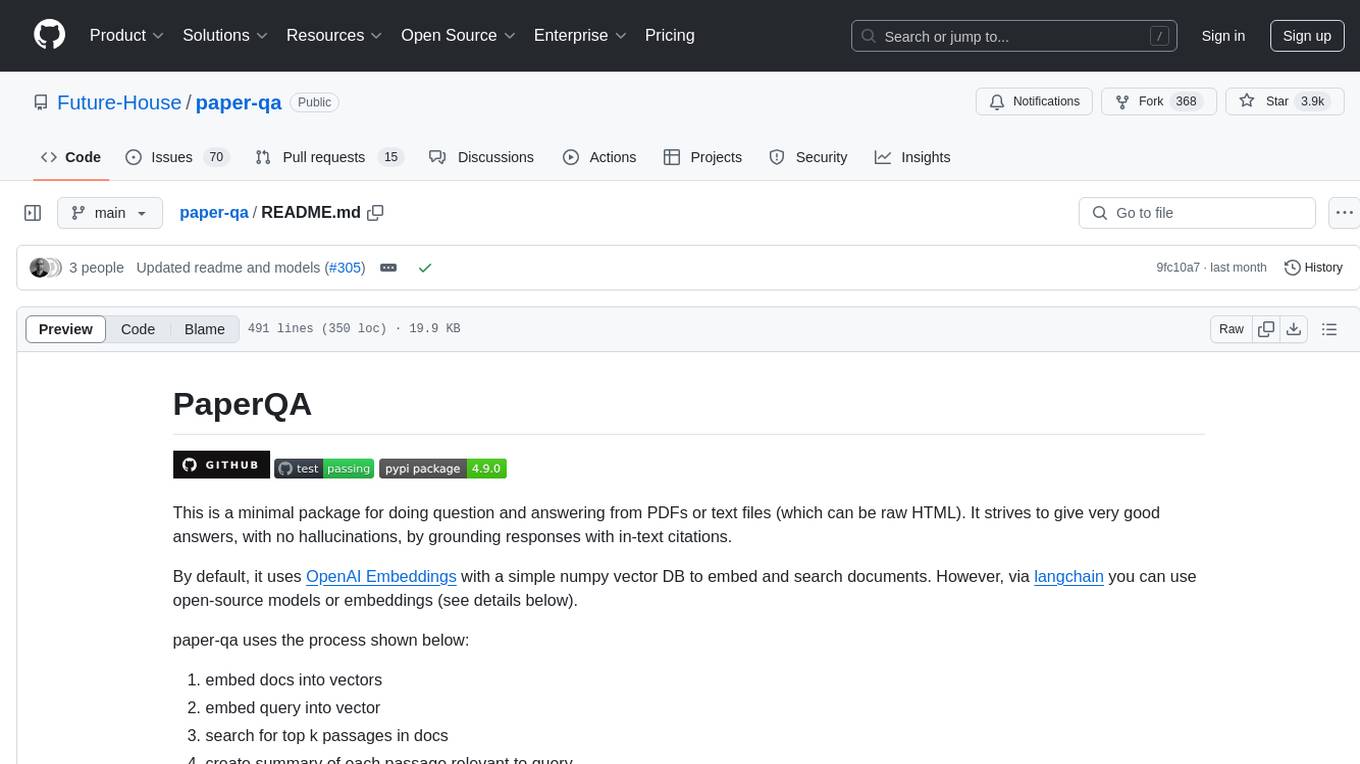
paper-qa
PaperQA is a minimal package for question and answering from PDFs or text files, providing very good answers with in-text citations. It uses OpenAI Embeddings to embed and search documents, and includes a process of embedding docs, queries, searching for top passages, creating summaries, using an LLM to re-score and select relevant summaries, putting summaries into prompt, and generating answers. The tool can be used to answer specific questions related to scientific research by leveraging citations and relevant passages from documents.
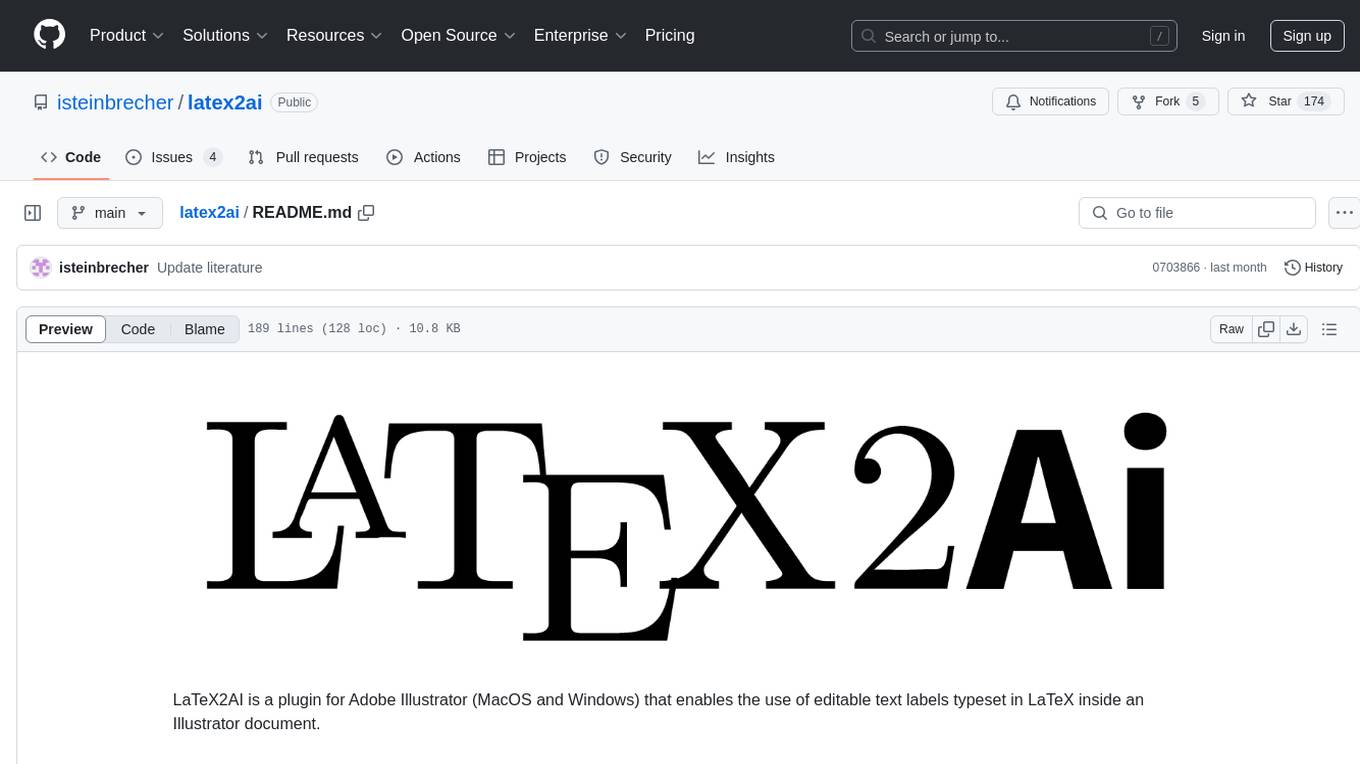
latex2ai
LaTeX2AI is a plugin for Adobe Illustrator that allows users to use editable text labels typeset in LaTeX inside an Illustrator document. It provides a seamless integration of LaTeX functionality within the Illustrator environment, enabling users to create and edit LaTeX labels, manage item scaling behavior, set global options, and save documents as PDF with included LaTeX labels. The tool simplifies the process of including LaTeX-generated content in Illustrator designs, ensuring accurate scaling and alignment with other elements in the document.
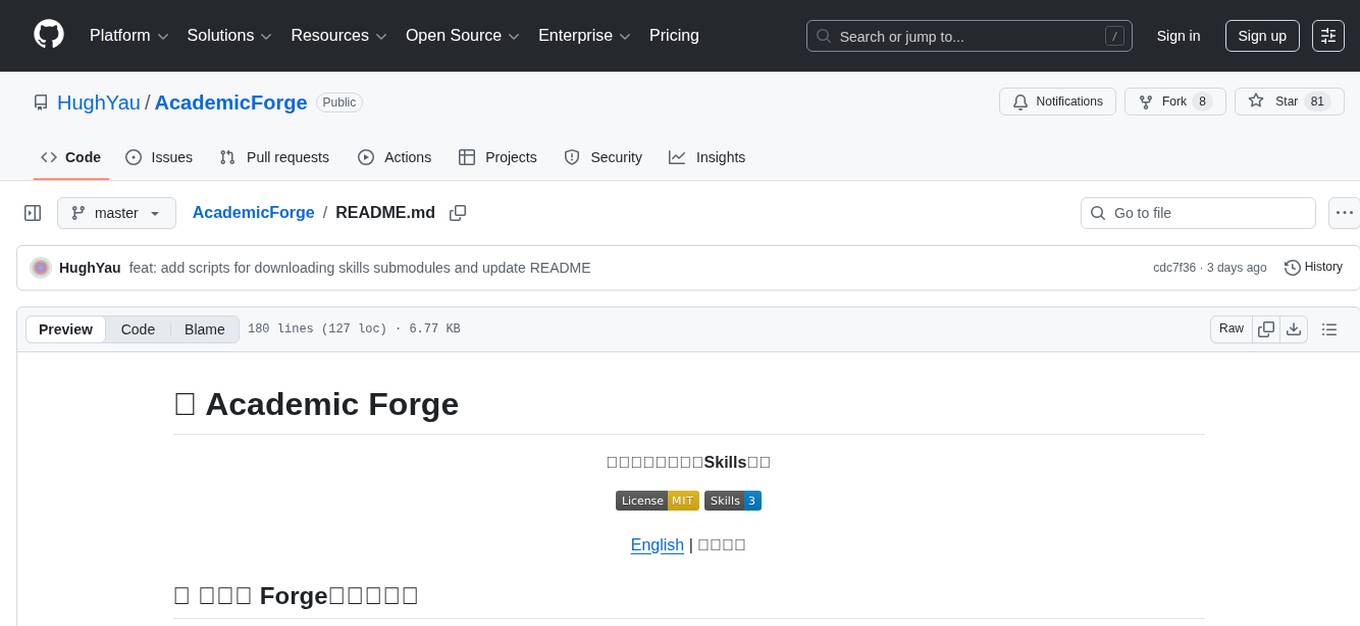
AcademicForge
Academic Forge is a collection of skills integrated for academic writing workflows. It provides a curated set of skills related to academic writing and research, allowing for precise skill calls, avoiding confusion between similar skills, maintaining focus on research workflows, and receiving timely updates from original authors. The forge integrates carefully selected skills covering various areas such as bioinformatics, clinical research, data analysis, scientific writing, laboratory automation, machine learning, databases, AI research, model architectures, fine-tuning, post-training, distributed training, optimization, inference, evaluation, agents, multimodal tasks, and machine learning paper writing. It is designed to streamline the academic writing and AI research processes by providing a cohesive and community-driven collection of skills.
20 - OpenAI Gpts
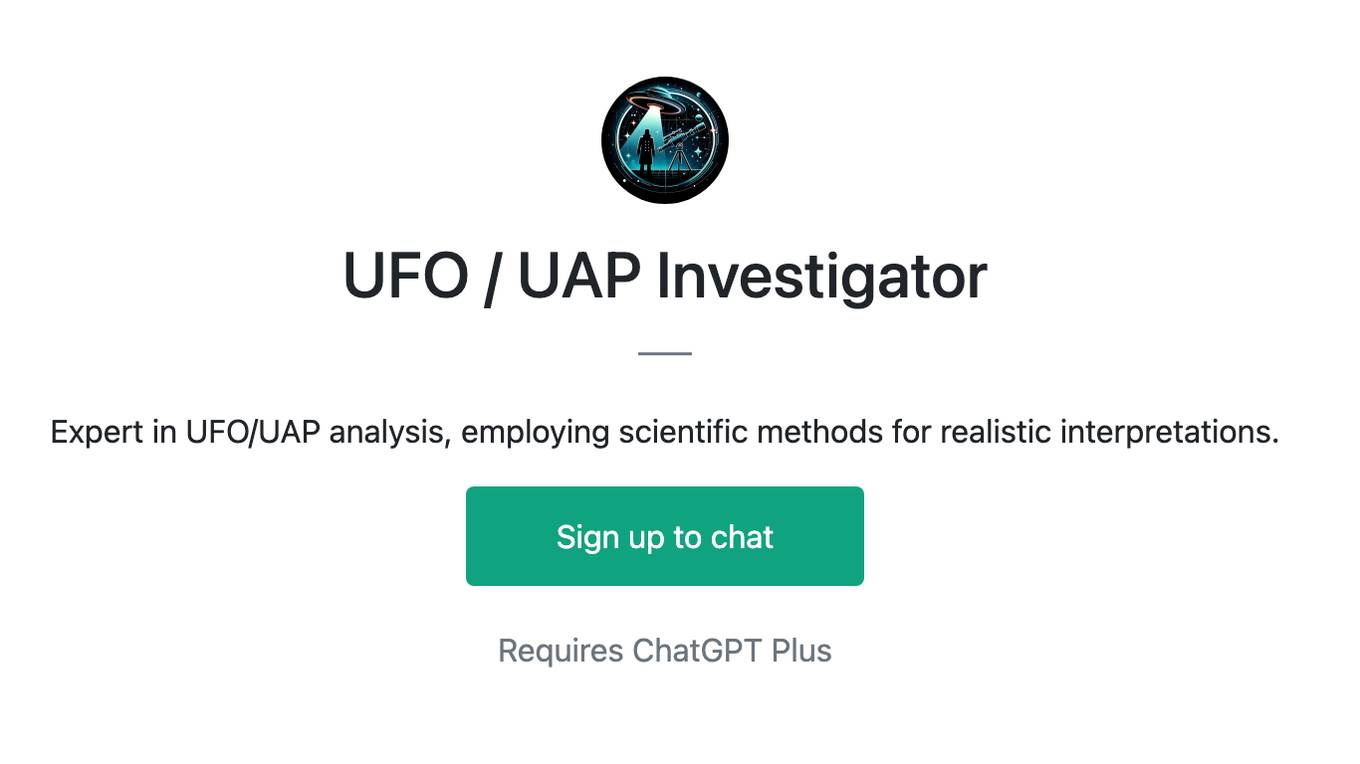
UFO / UAP Investigator
Expert in UFO/UAP analysis, employing scientific methods for realistic interpretations.
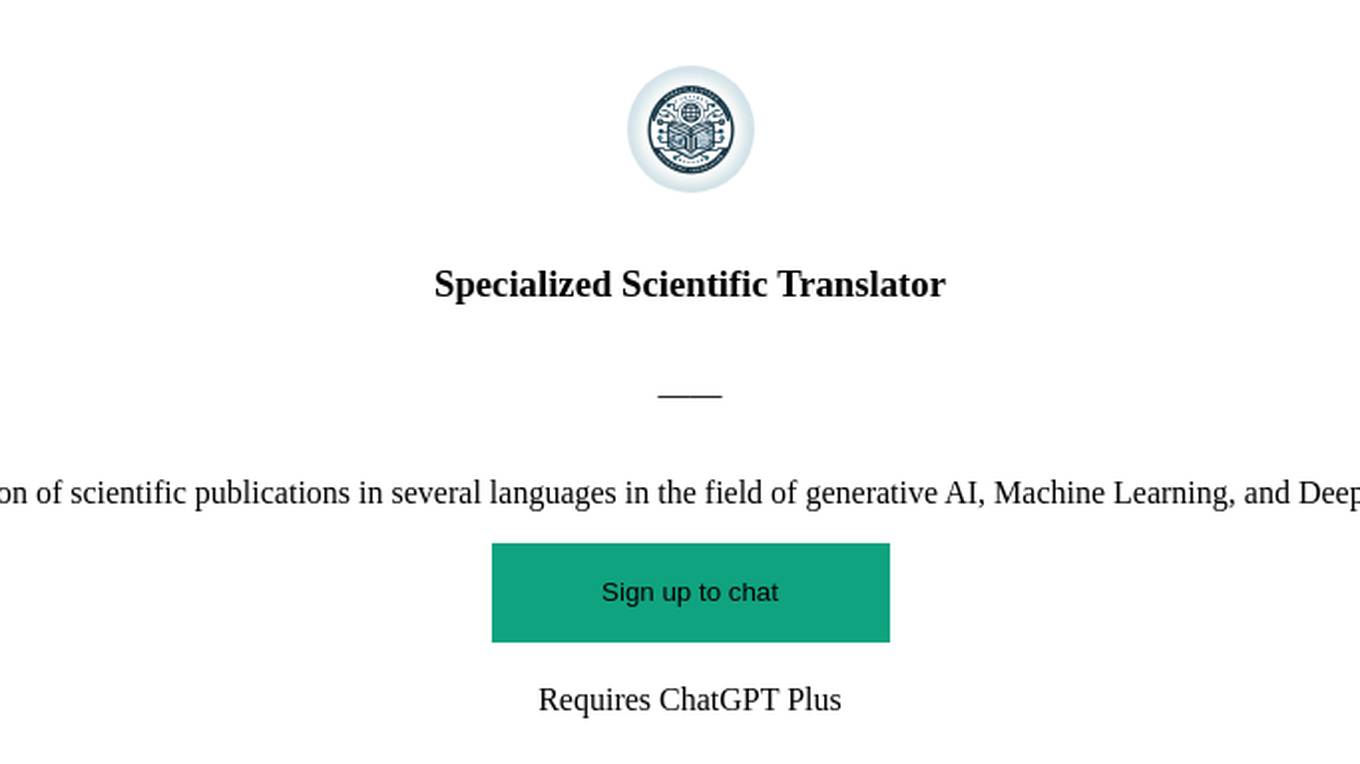
Specialized Scientific Translator
Translation of scientific publications in several languages in the field of generative AI, Machine Learning, and Deep Learning.
Scientific Calculator
A precise and reliable scientific calculator using Python for complex math operations.
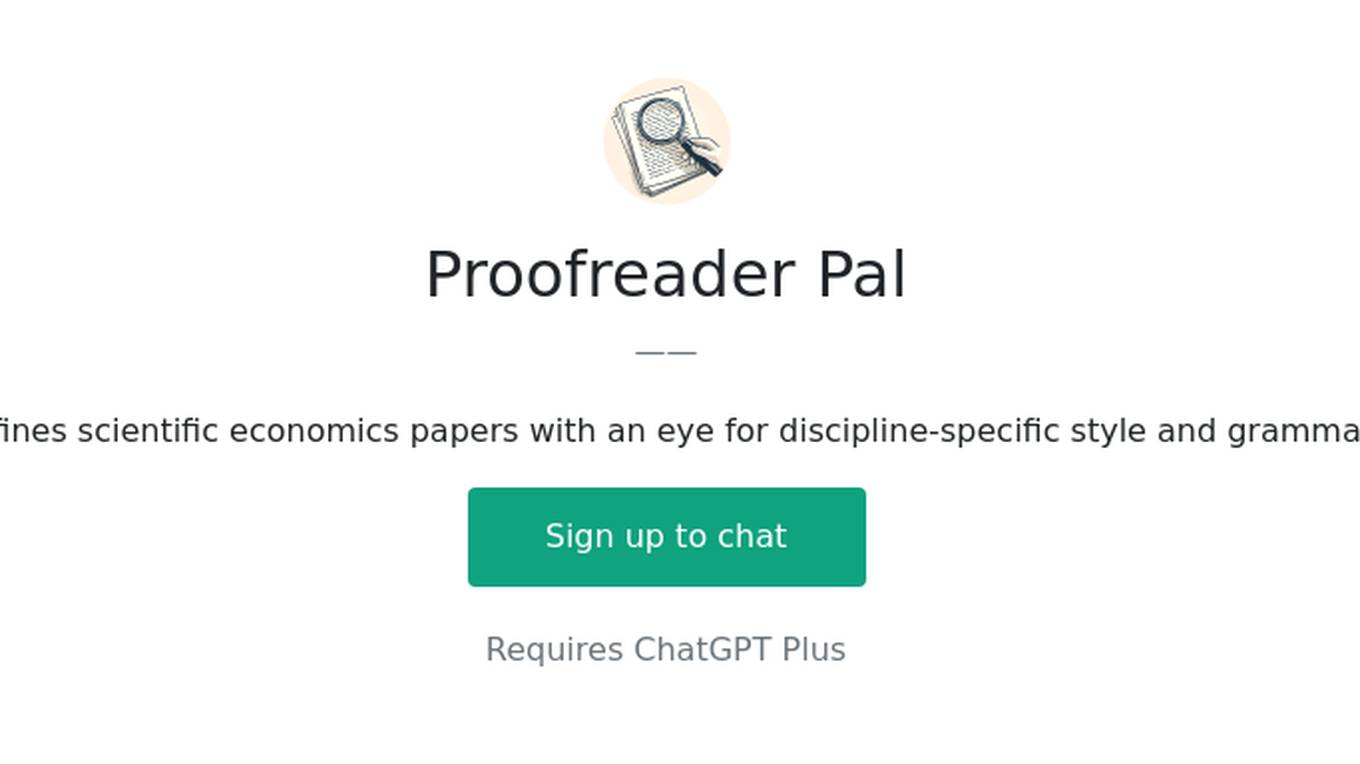
Proofreader Pal
Refines scientific economics papers with an eye for discipline-specific style and grammar.
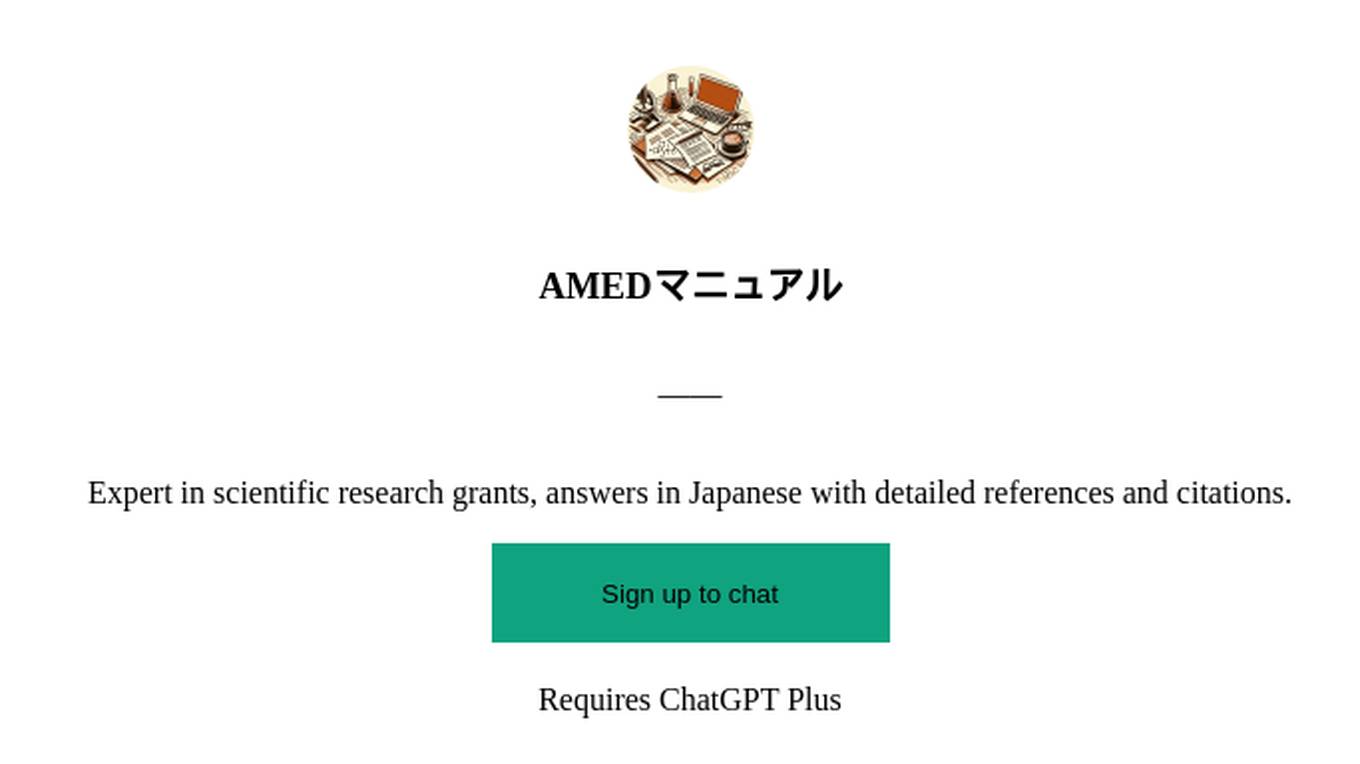
AMEDマニュアル
Expert in scientific research grants, answers in Japanese with detailed references and citations.
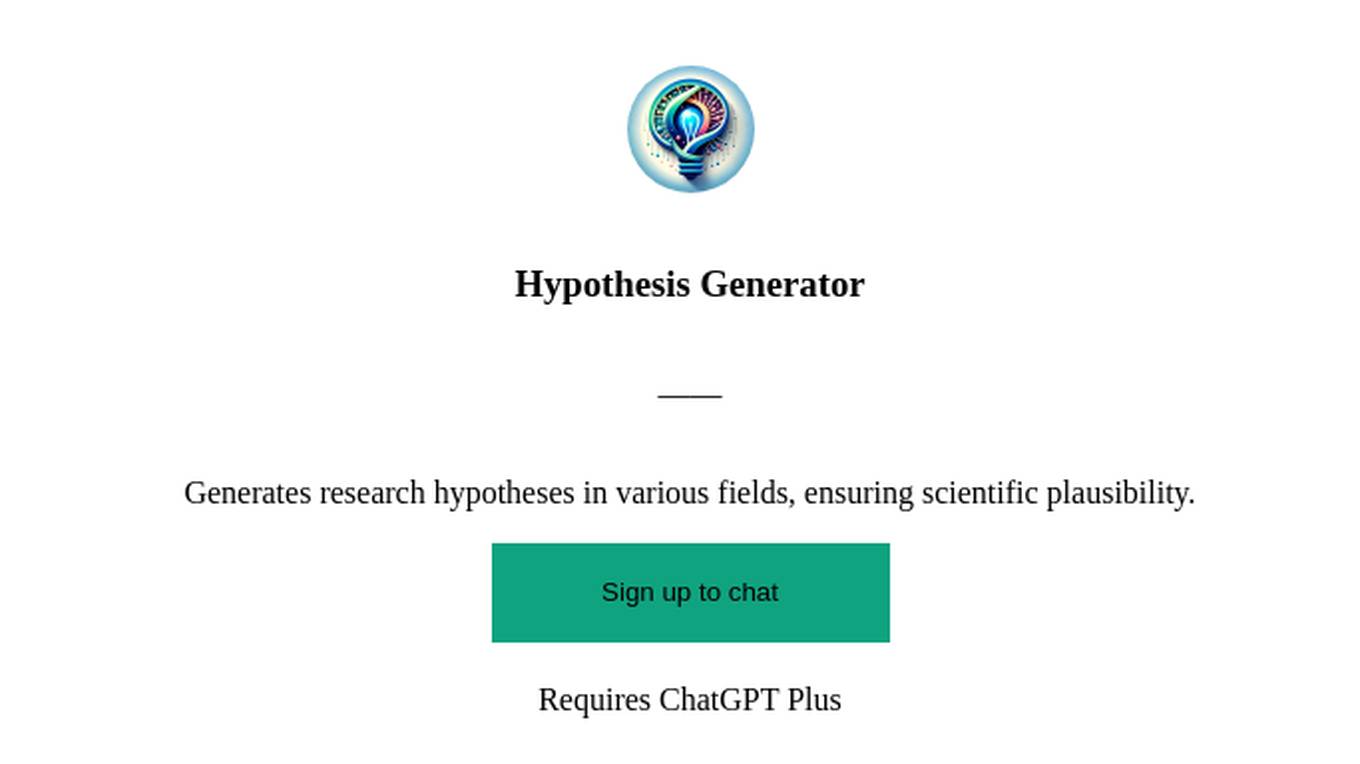
Hypothesis Generator
Generates research hypotheses in various fields, ensuring scientific plausibility.
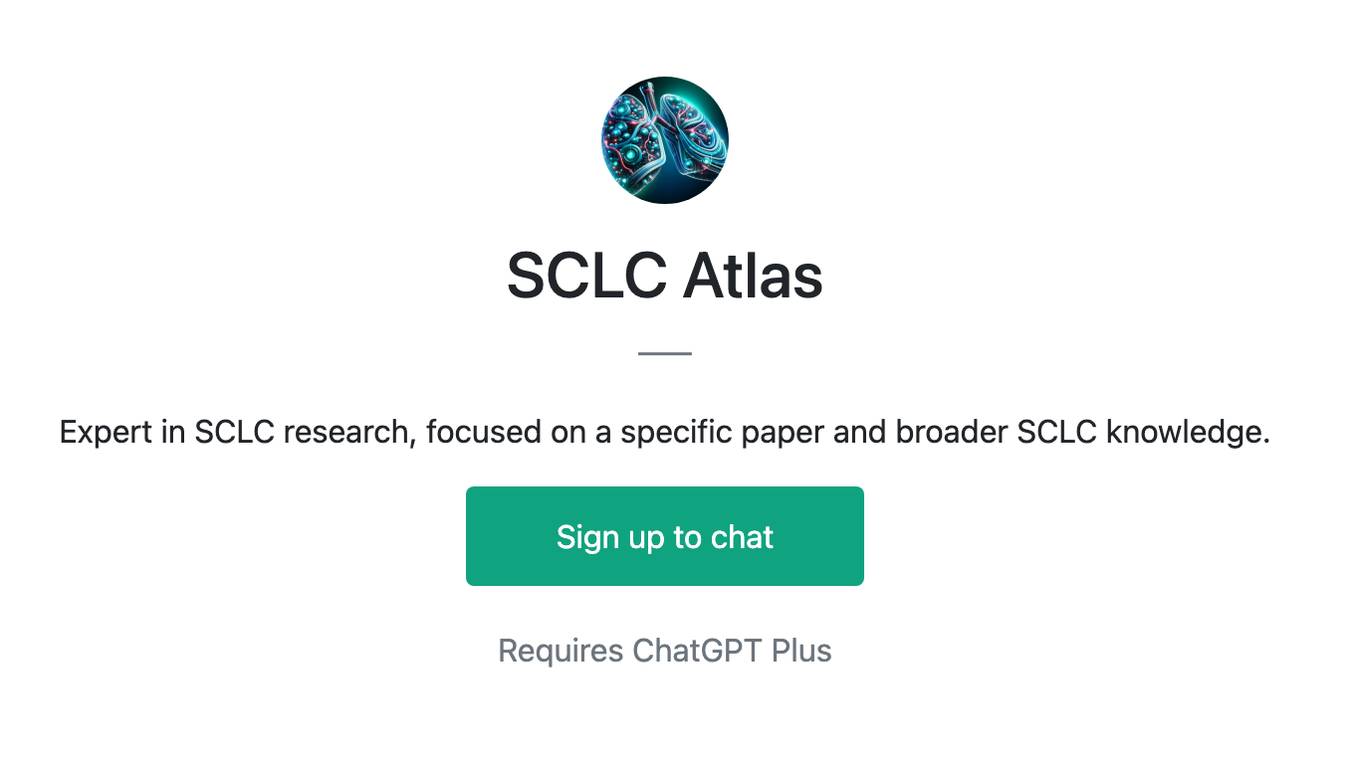
SCLC Atlas
Expert in SCLC research, focused on a specific paper and broader SCLC knowledge.
